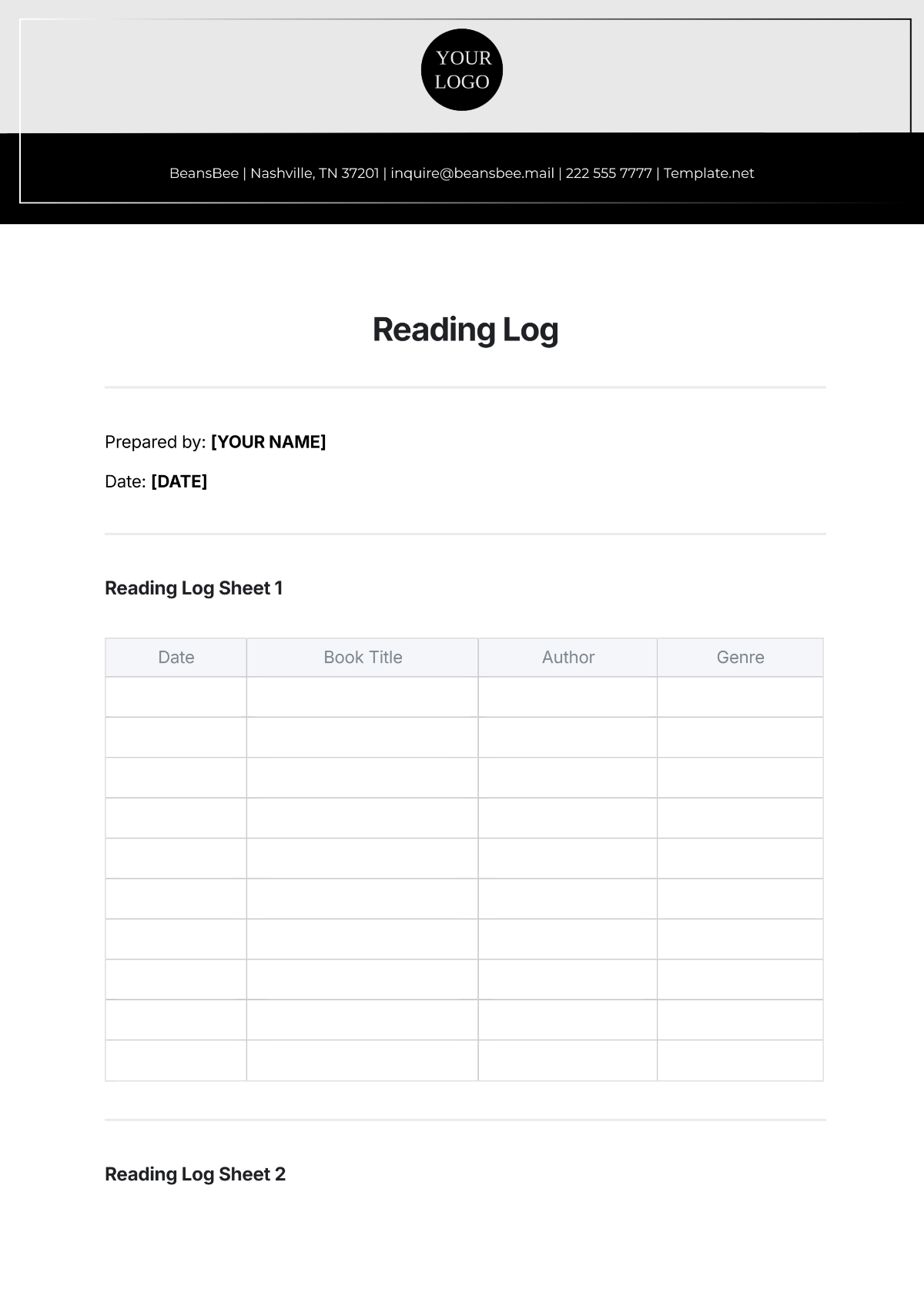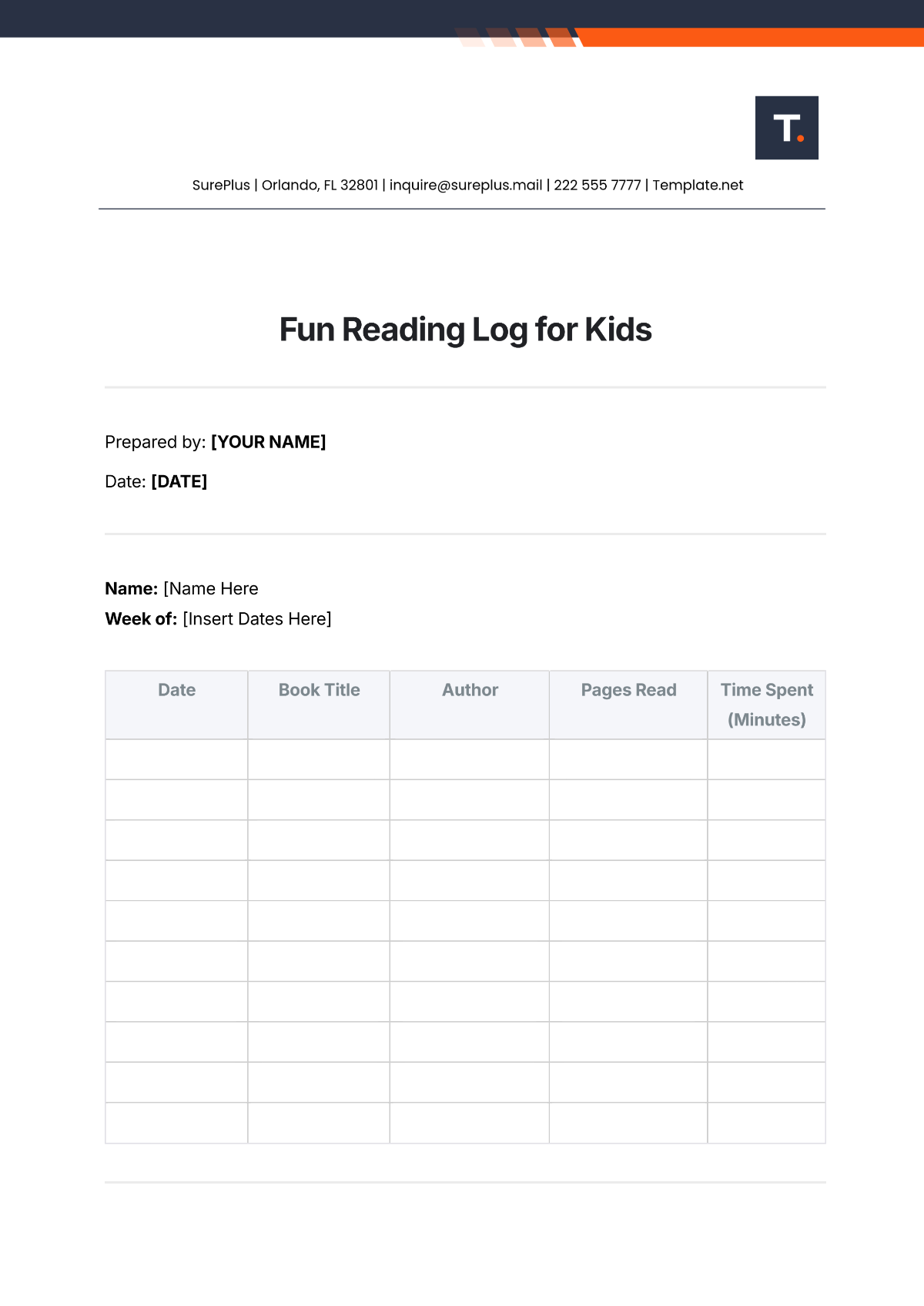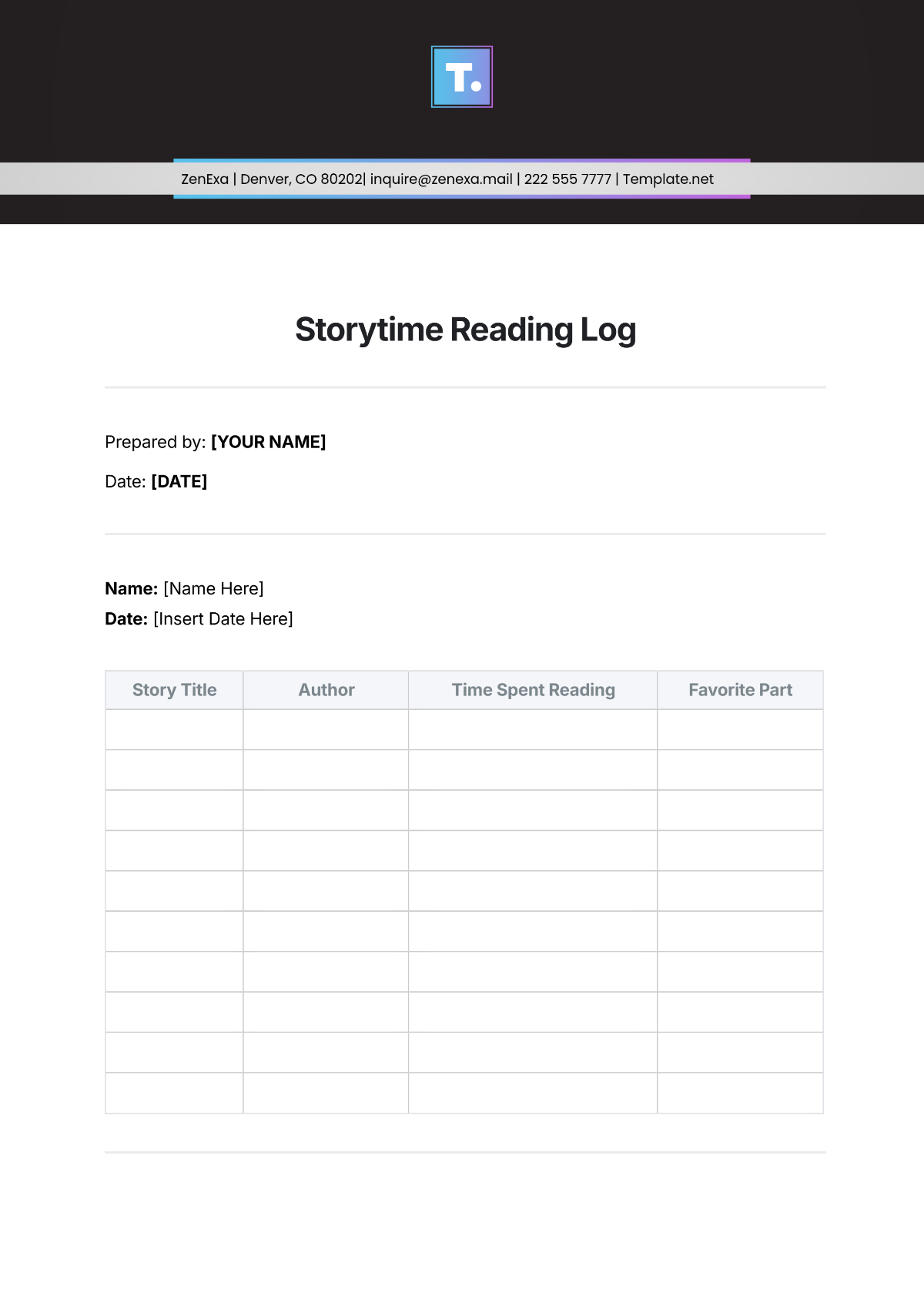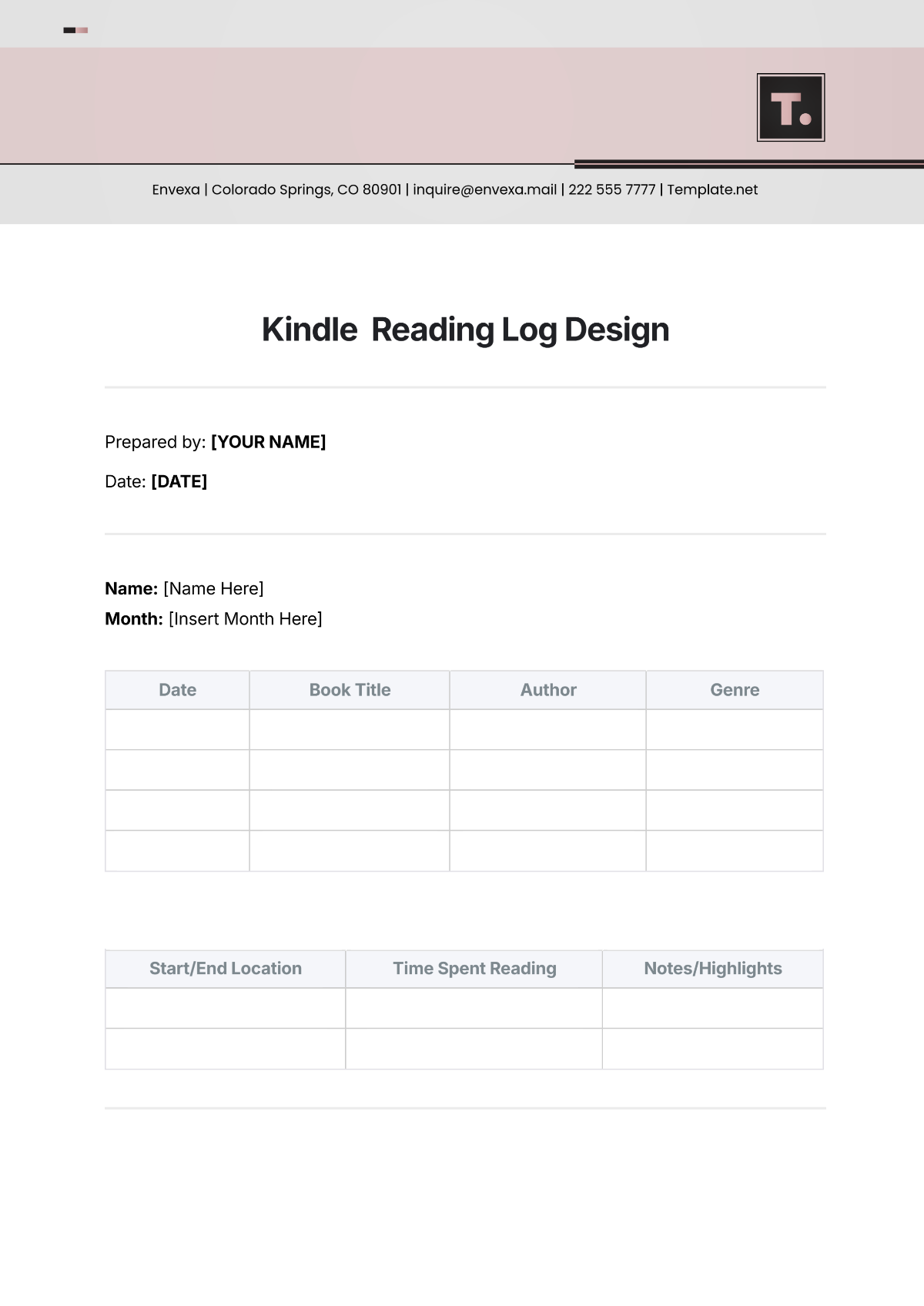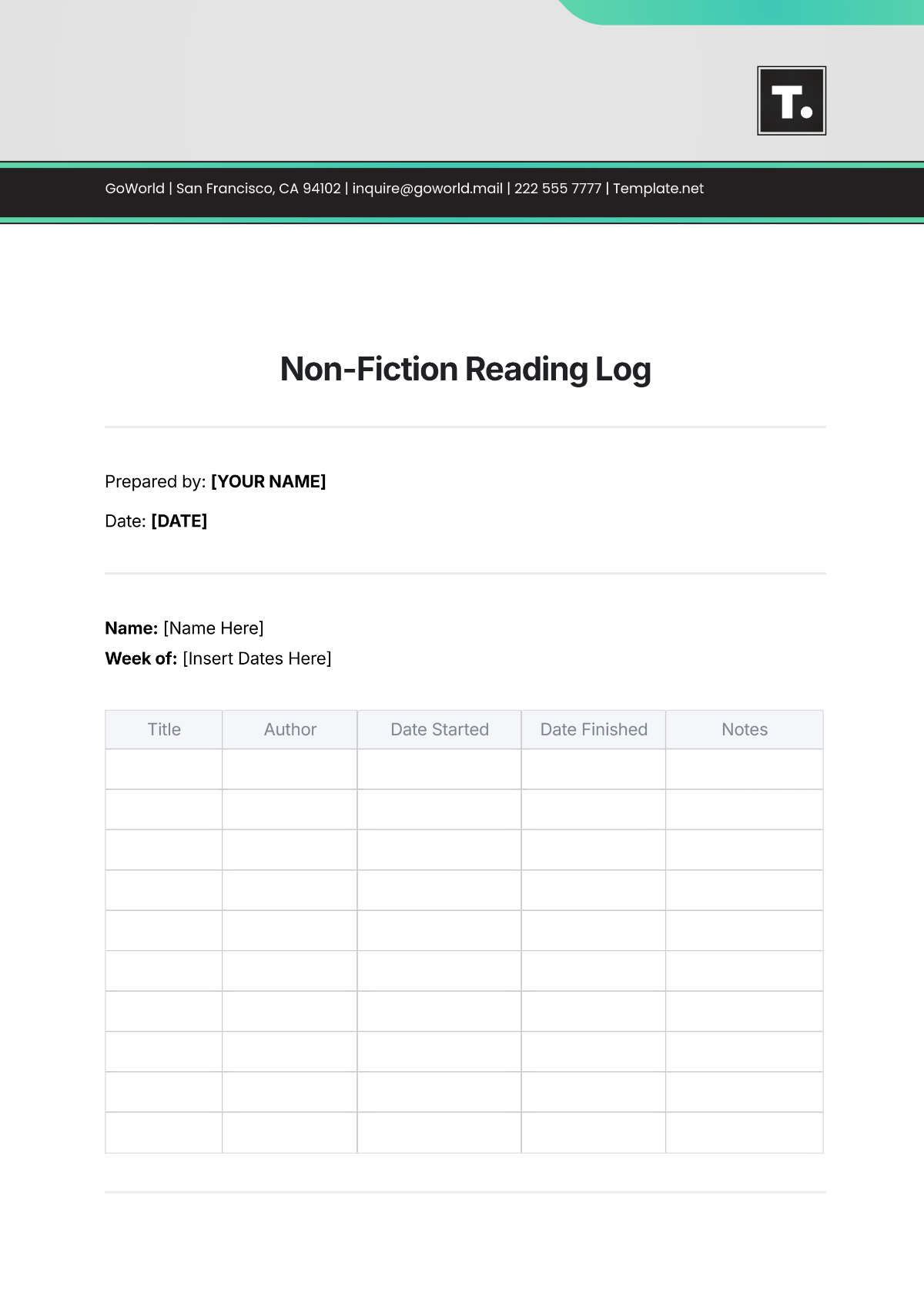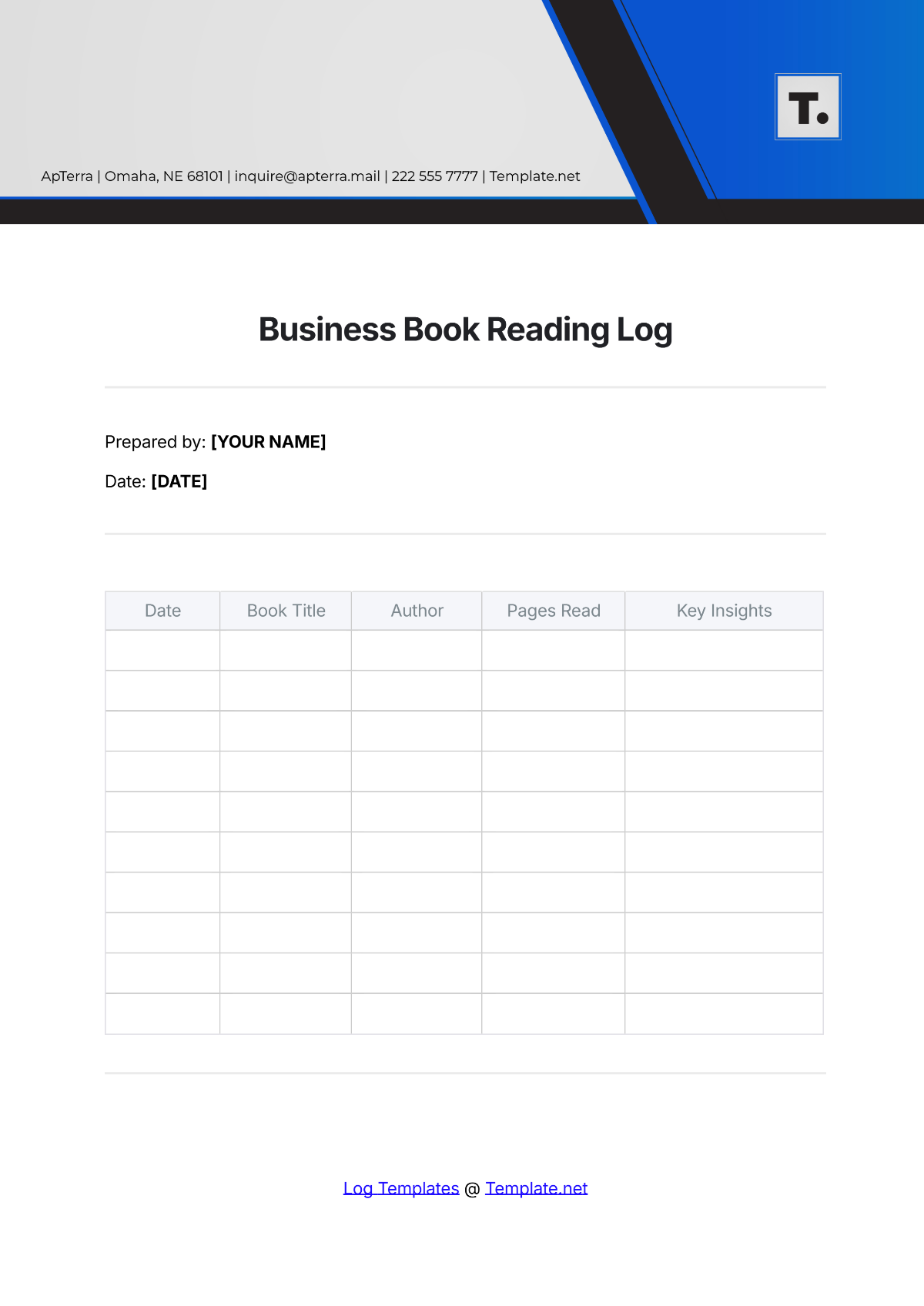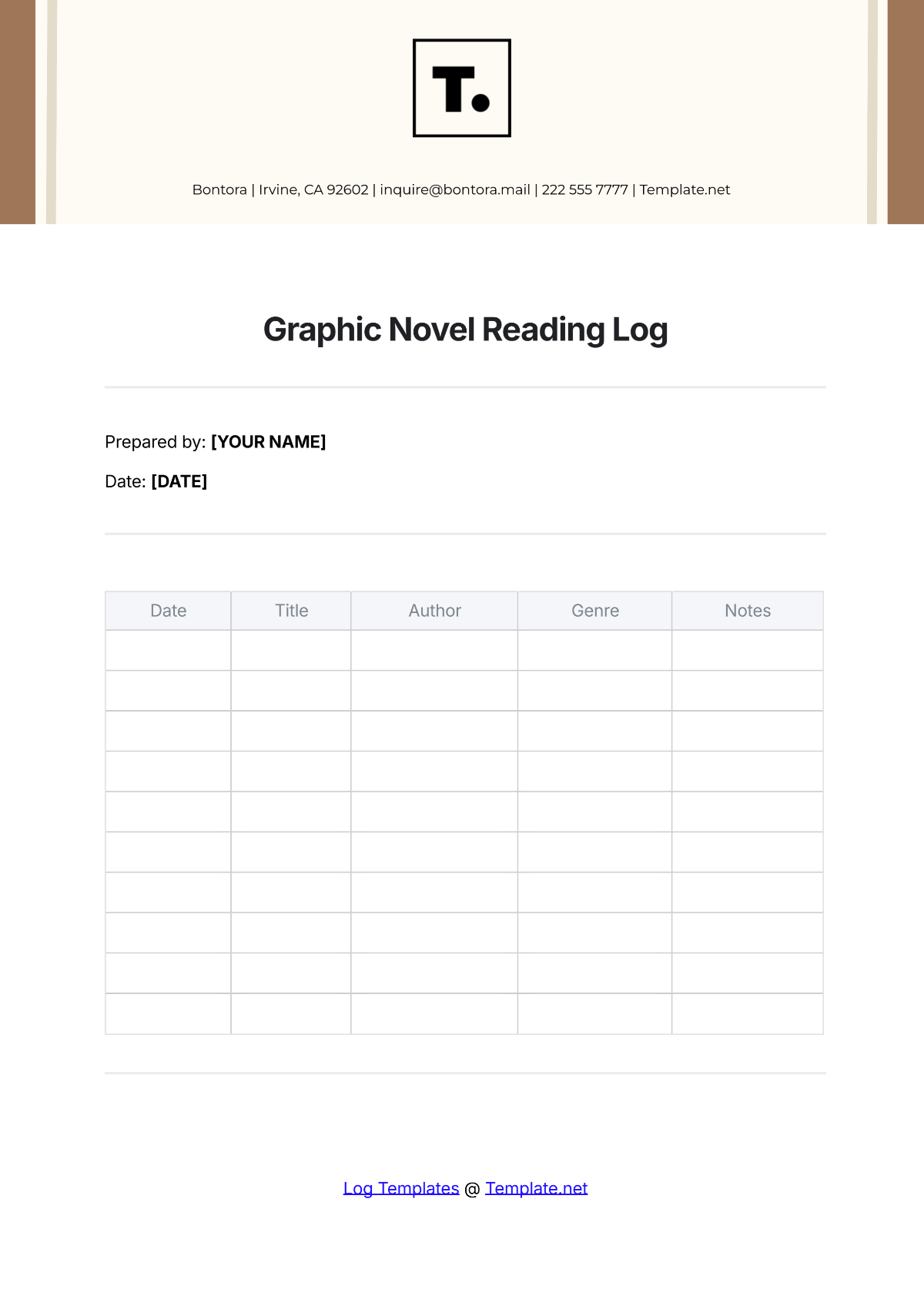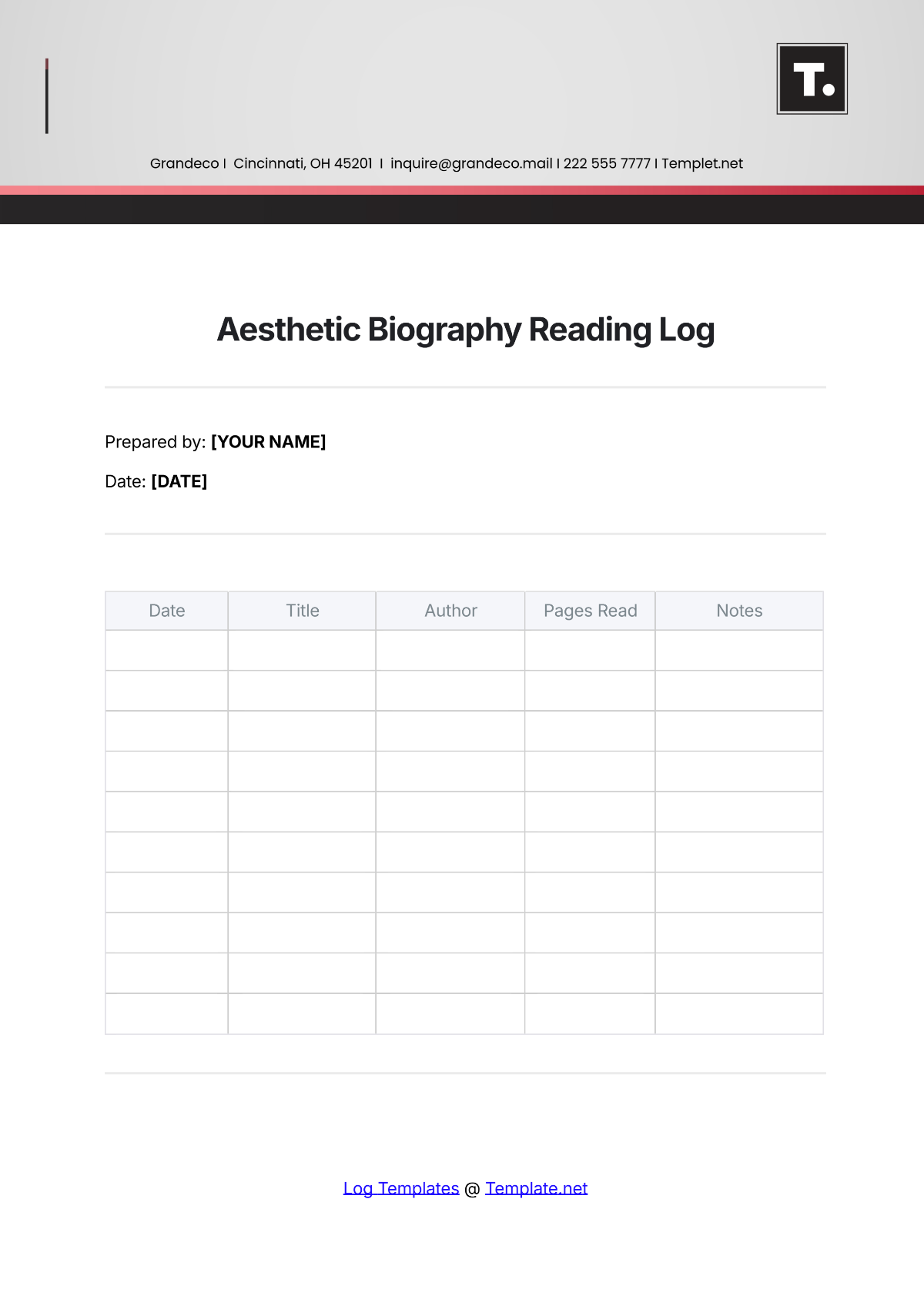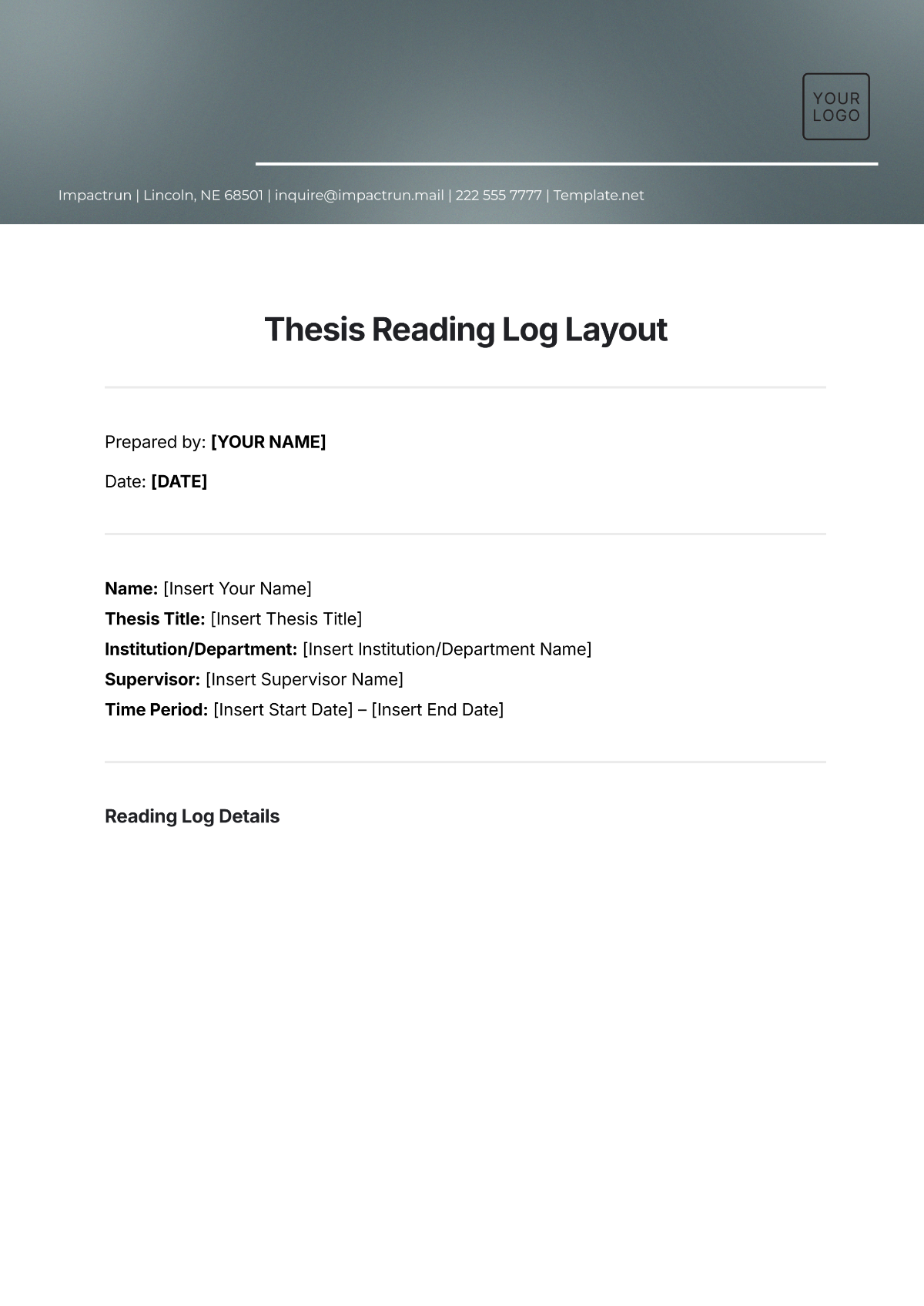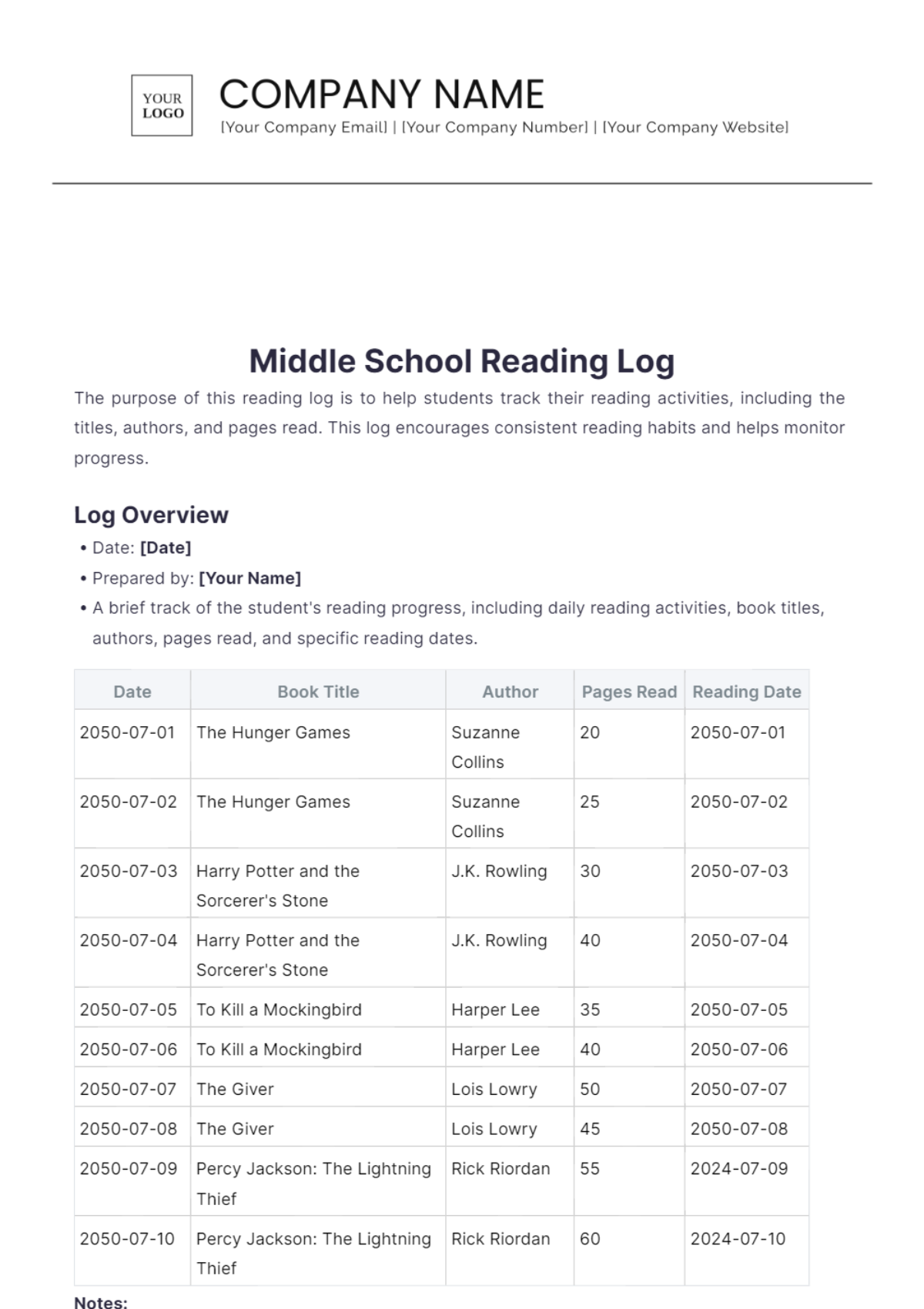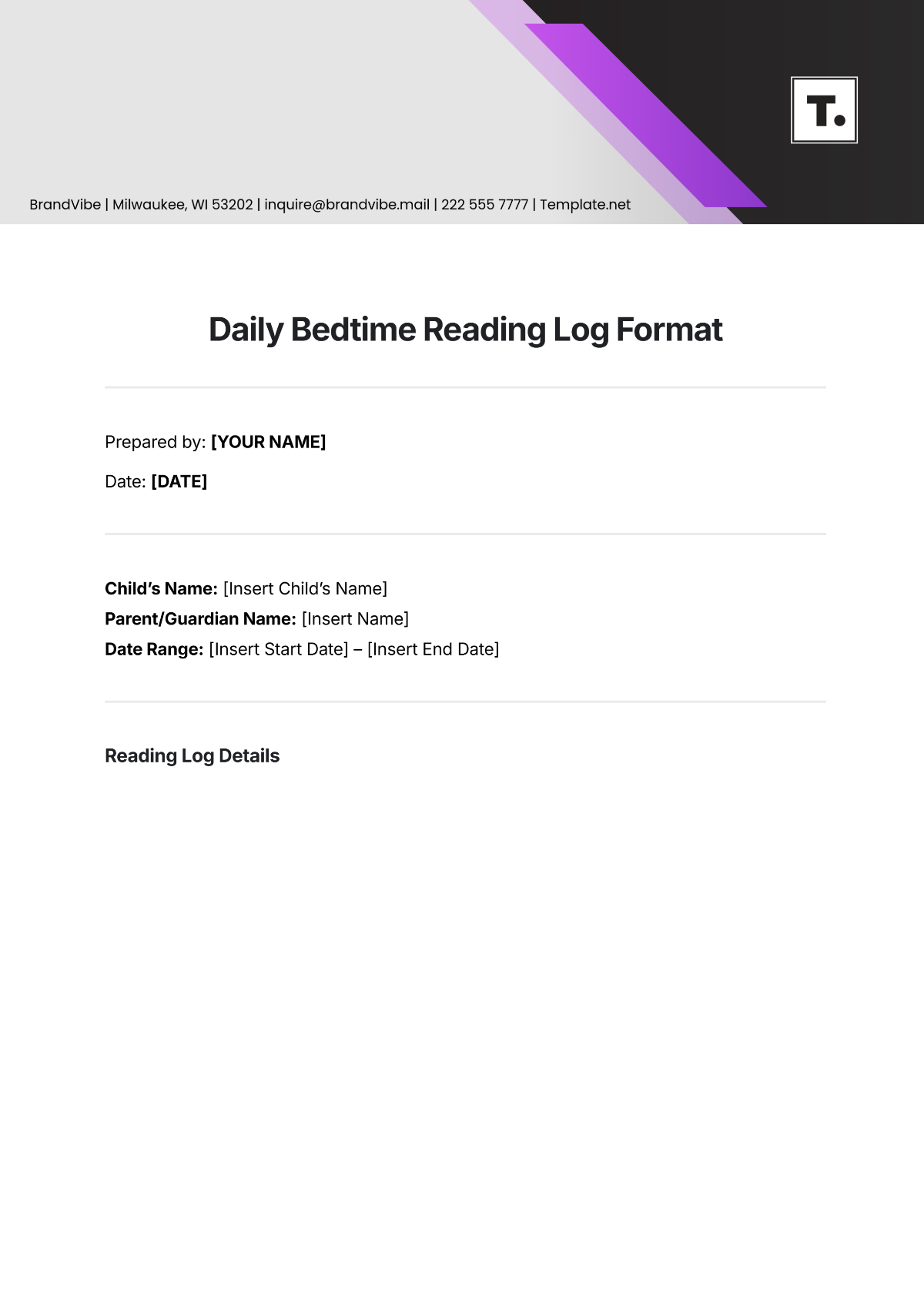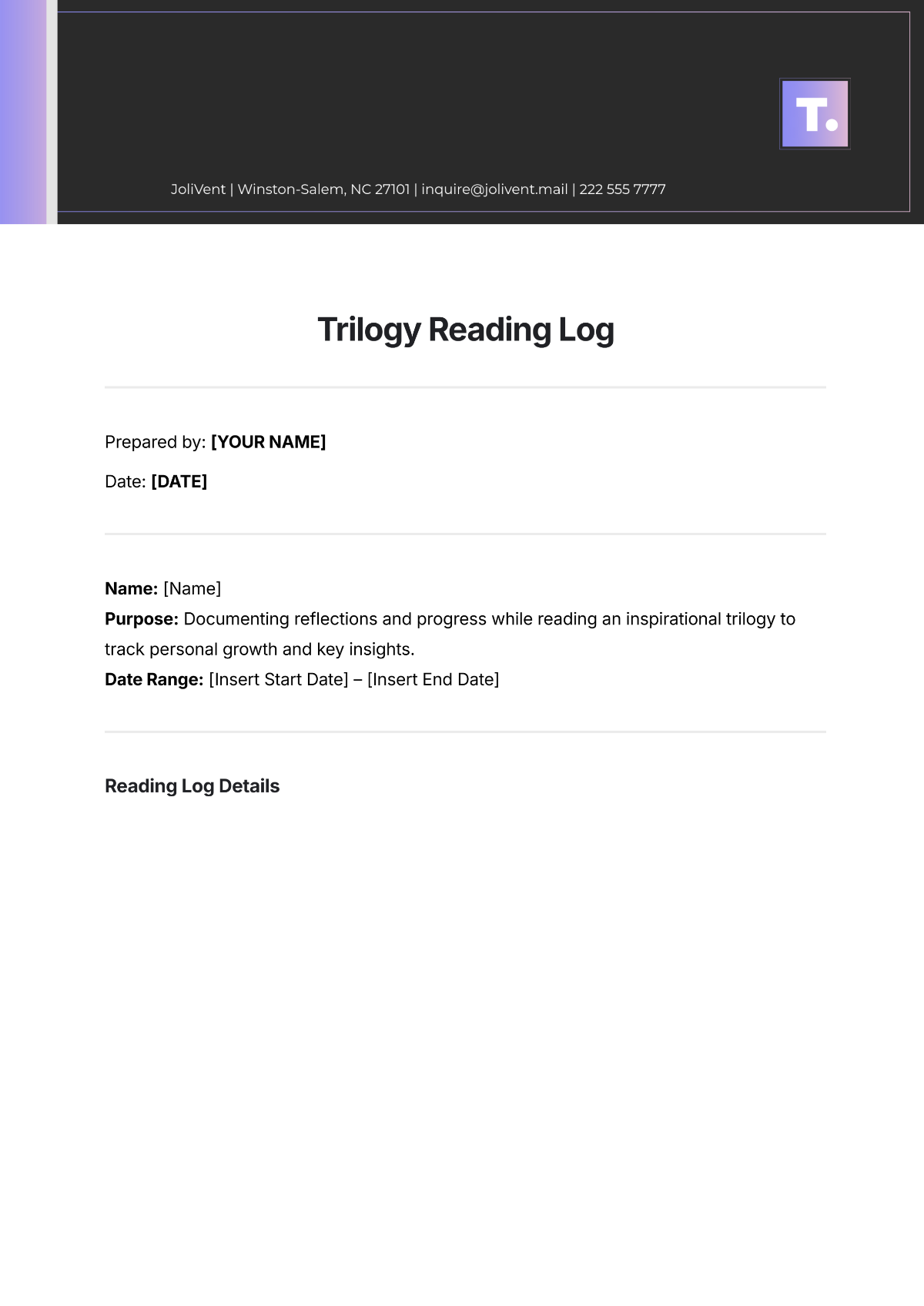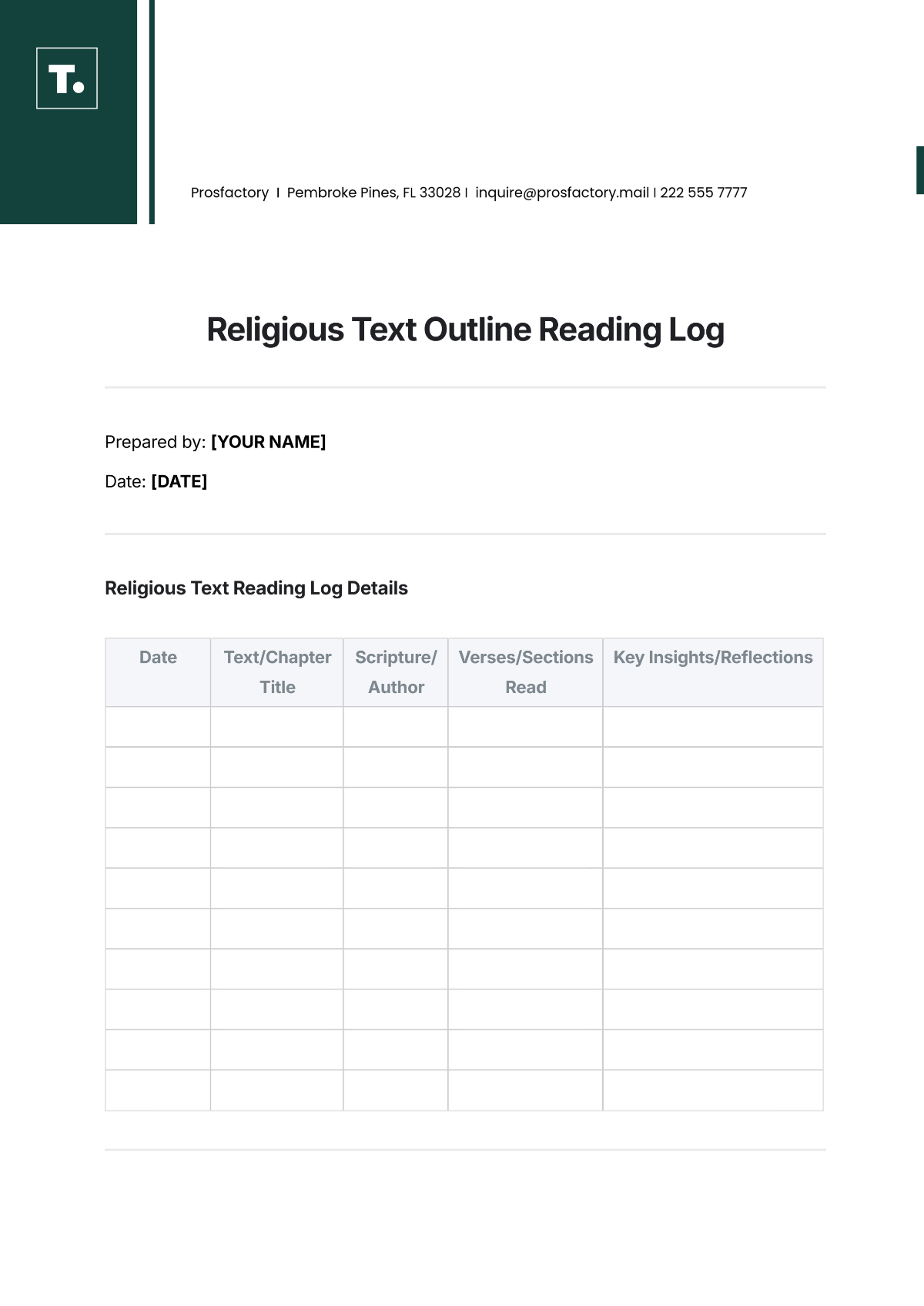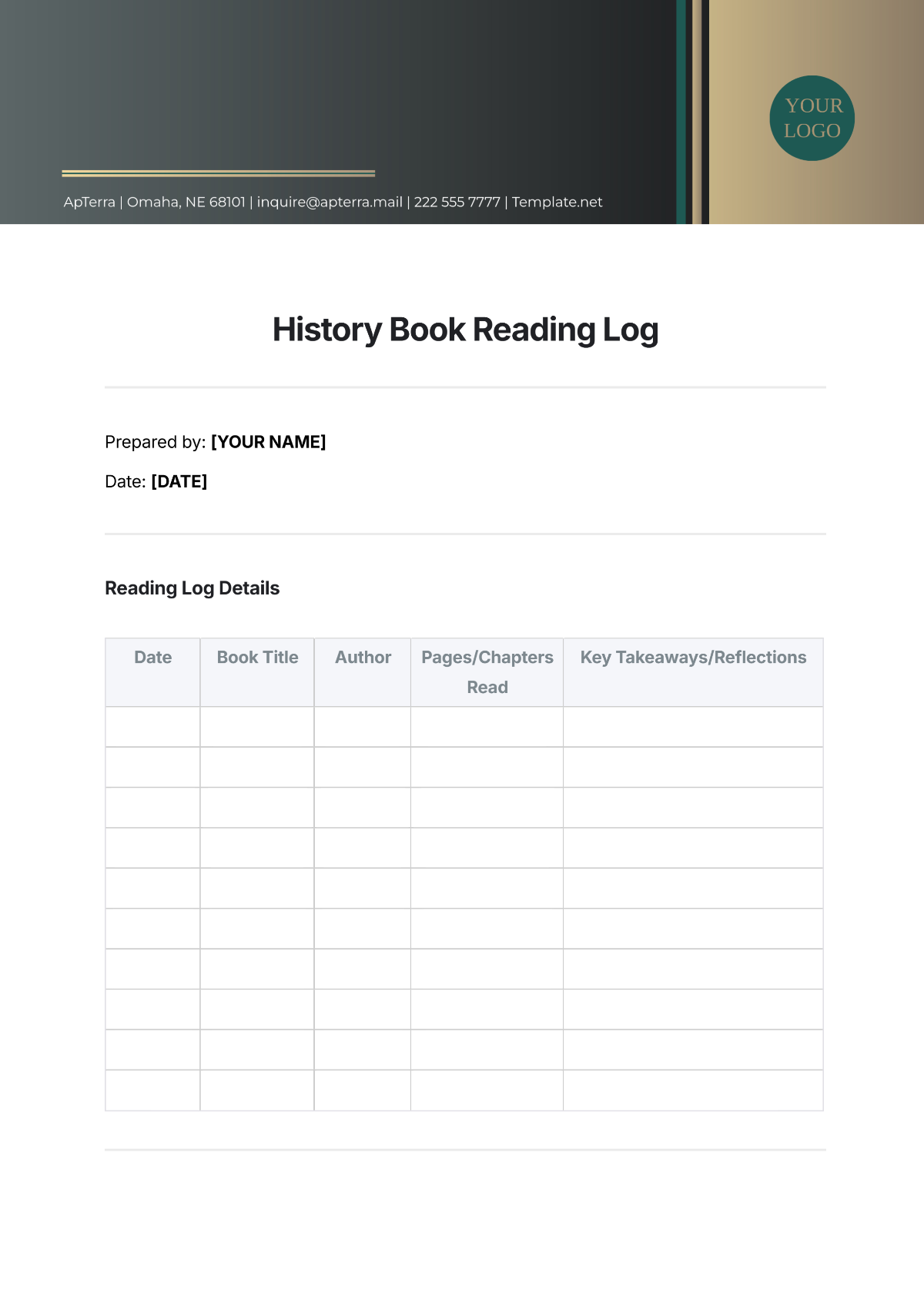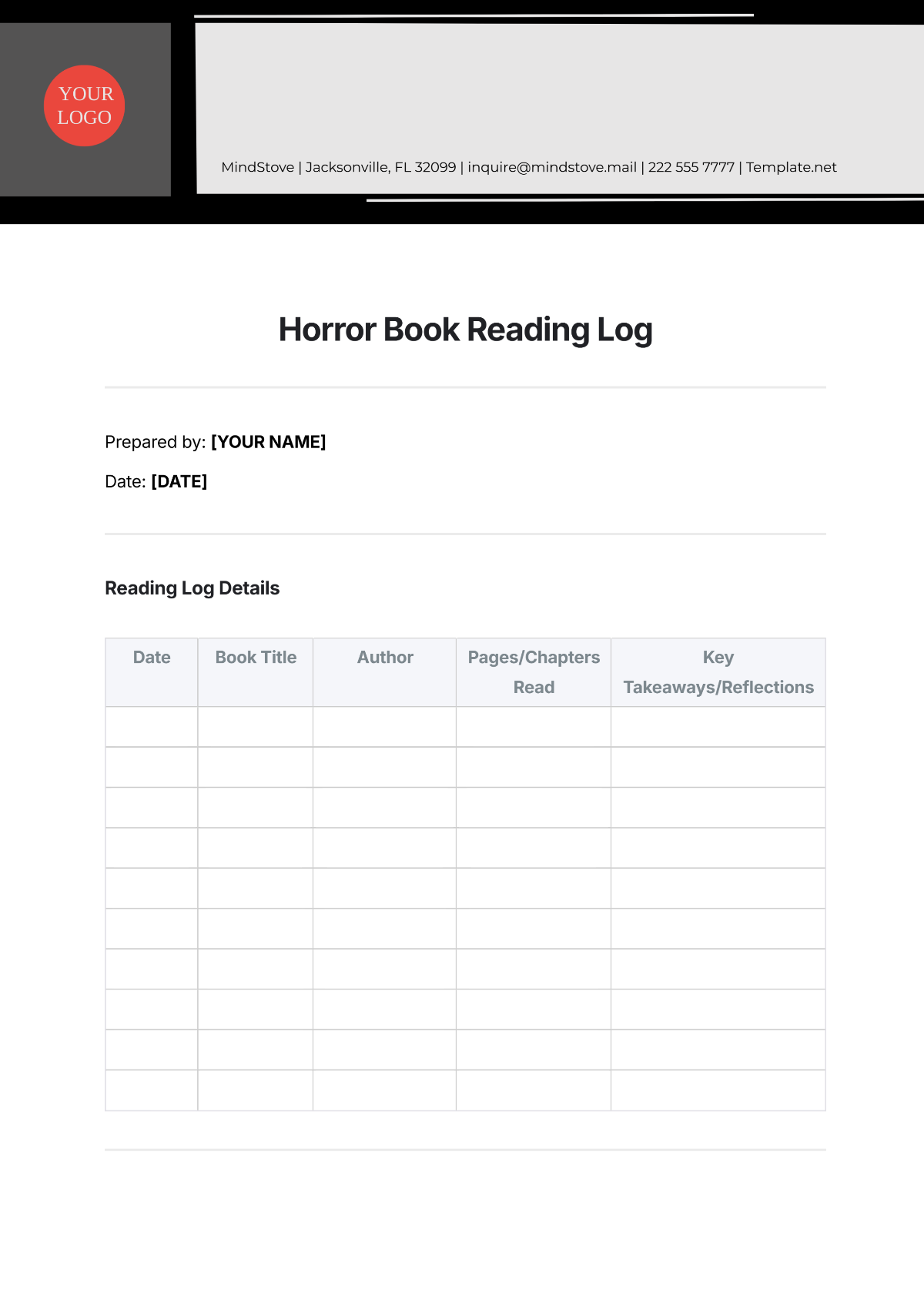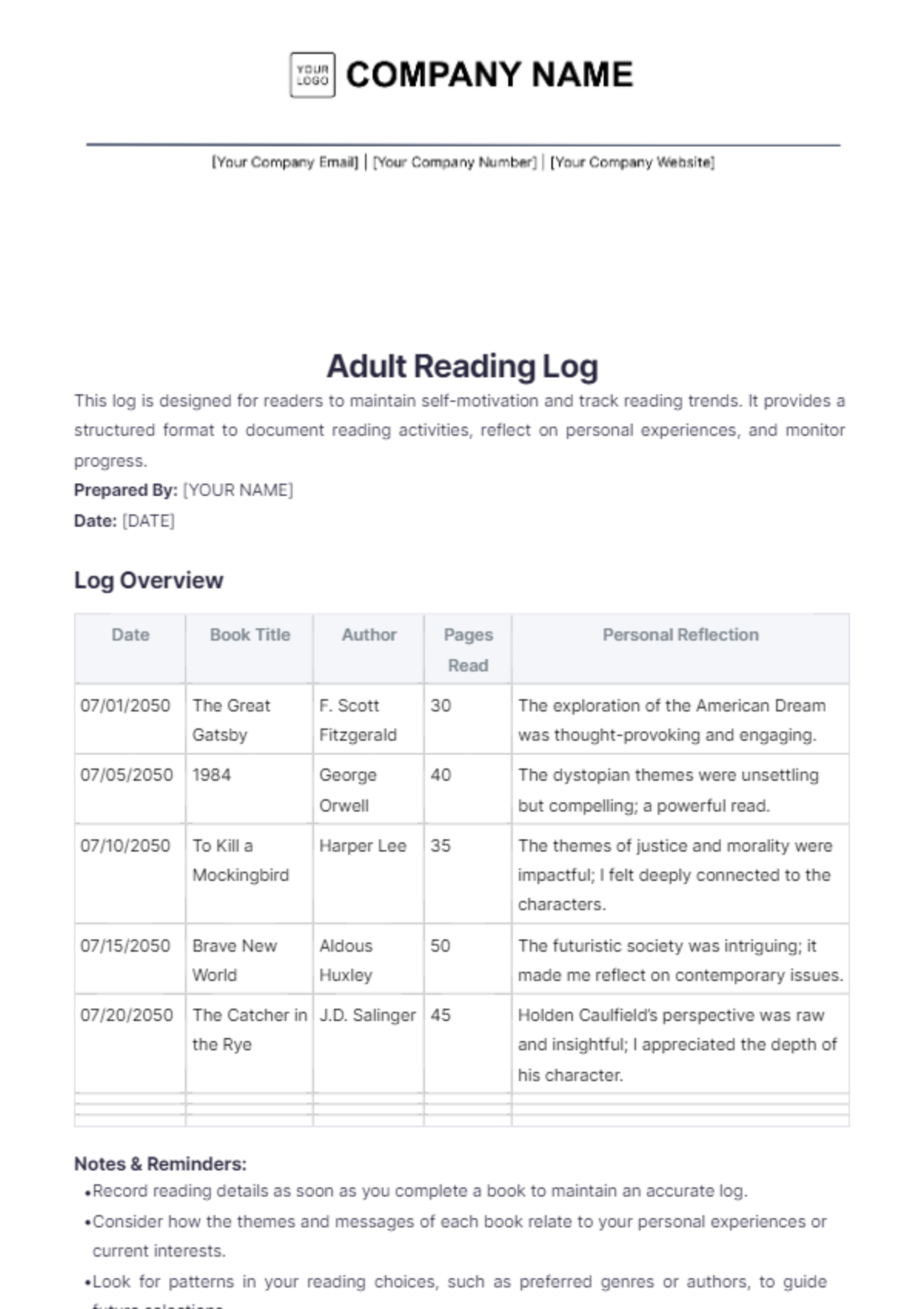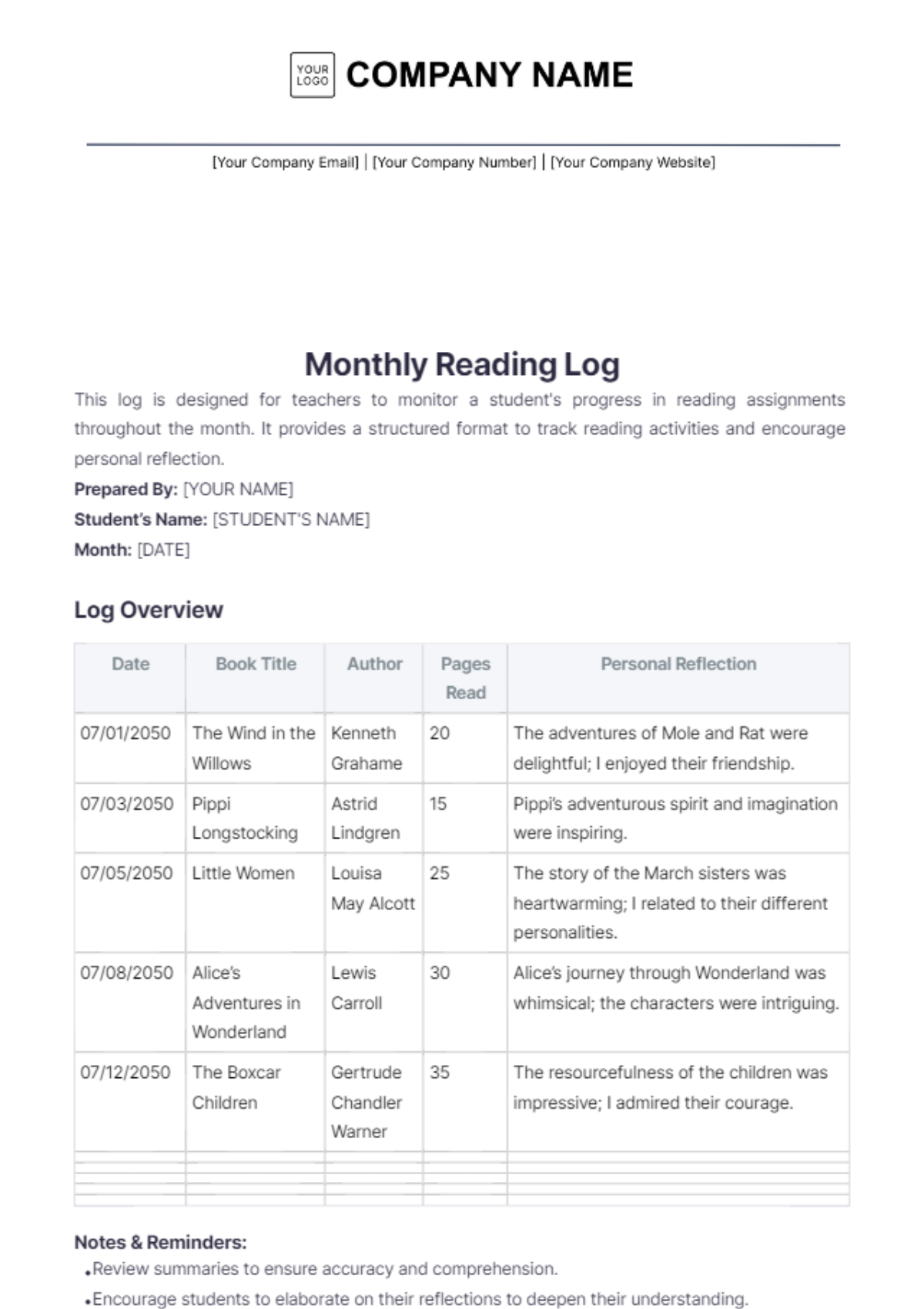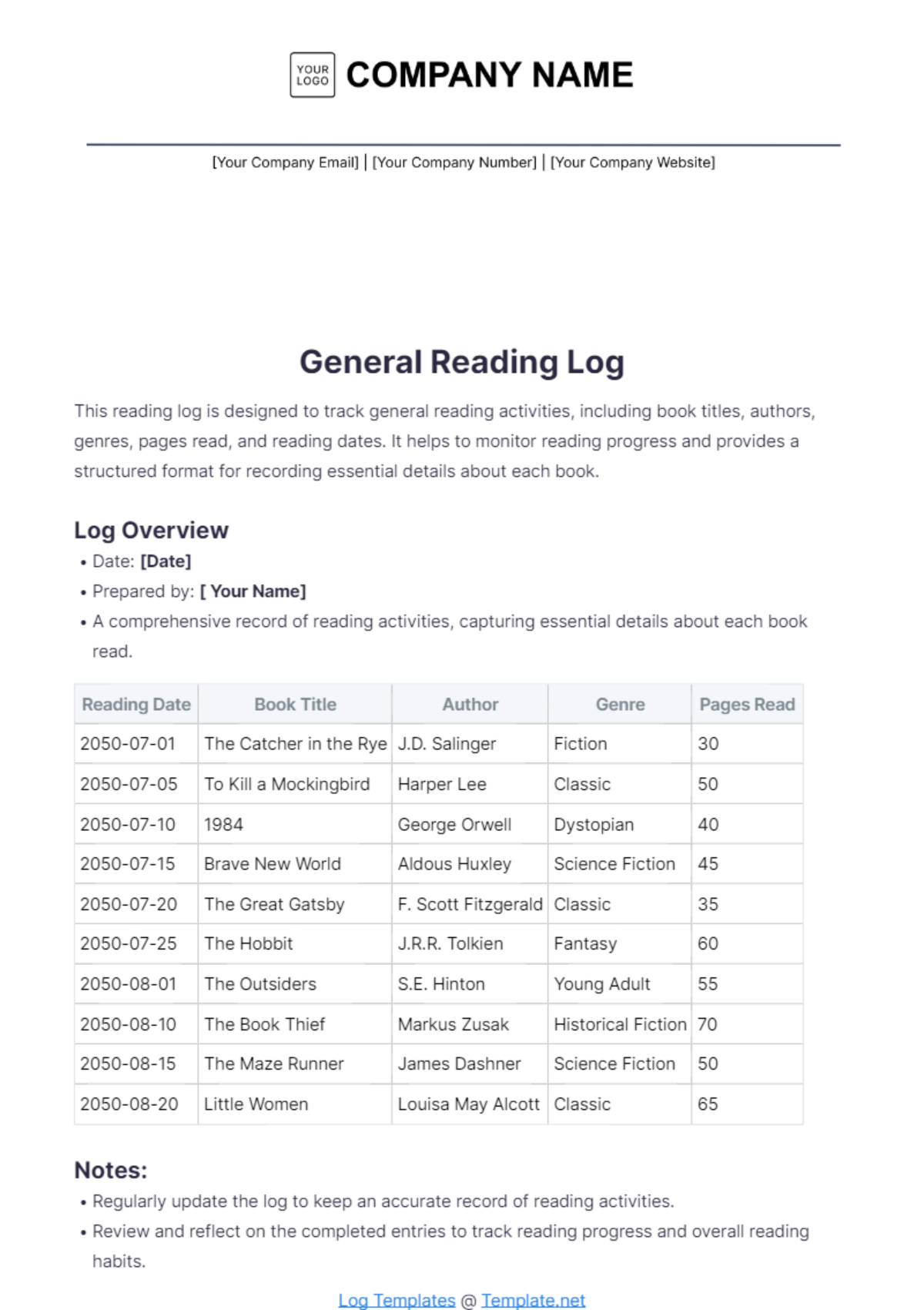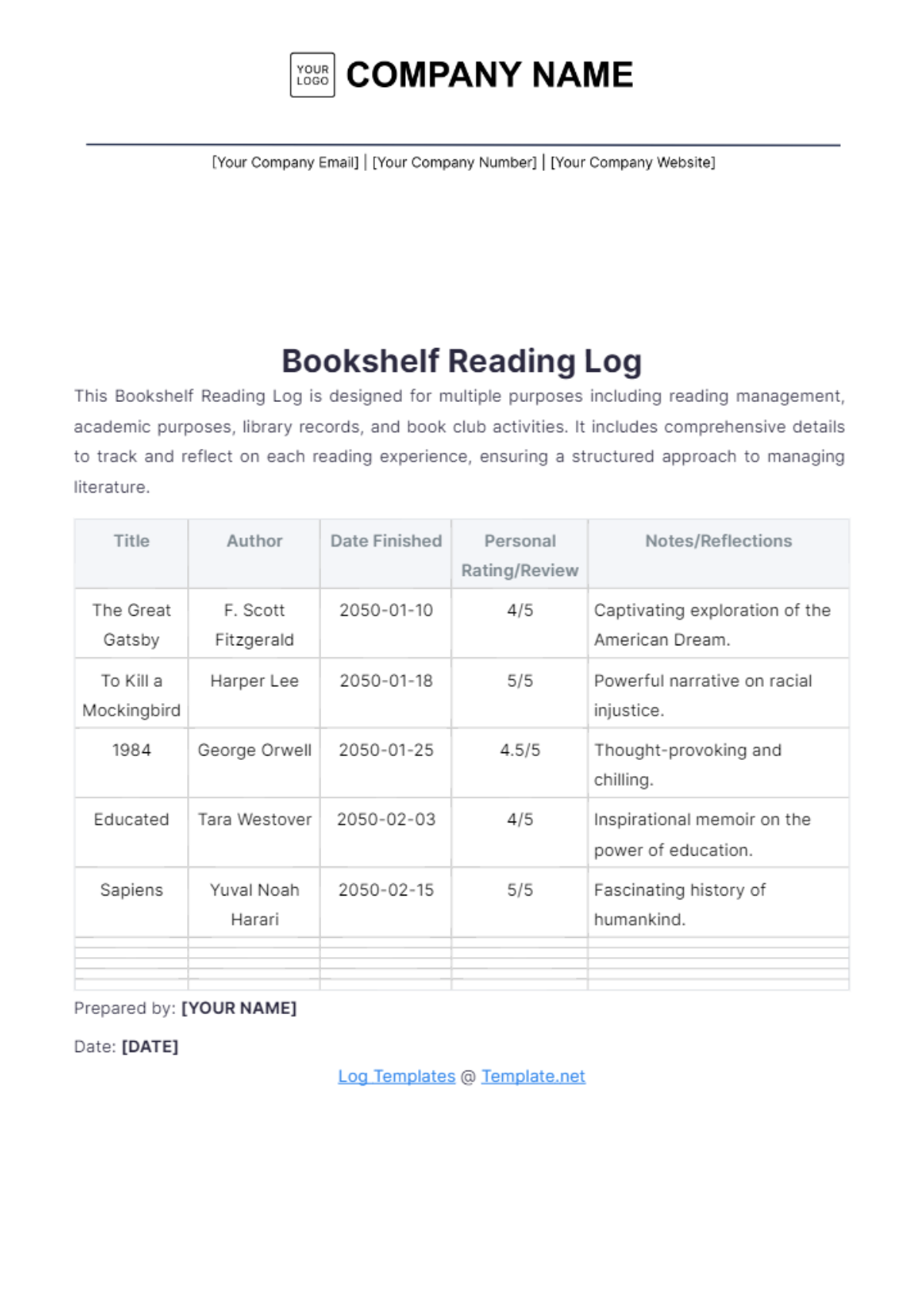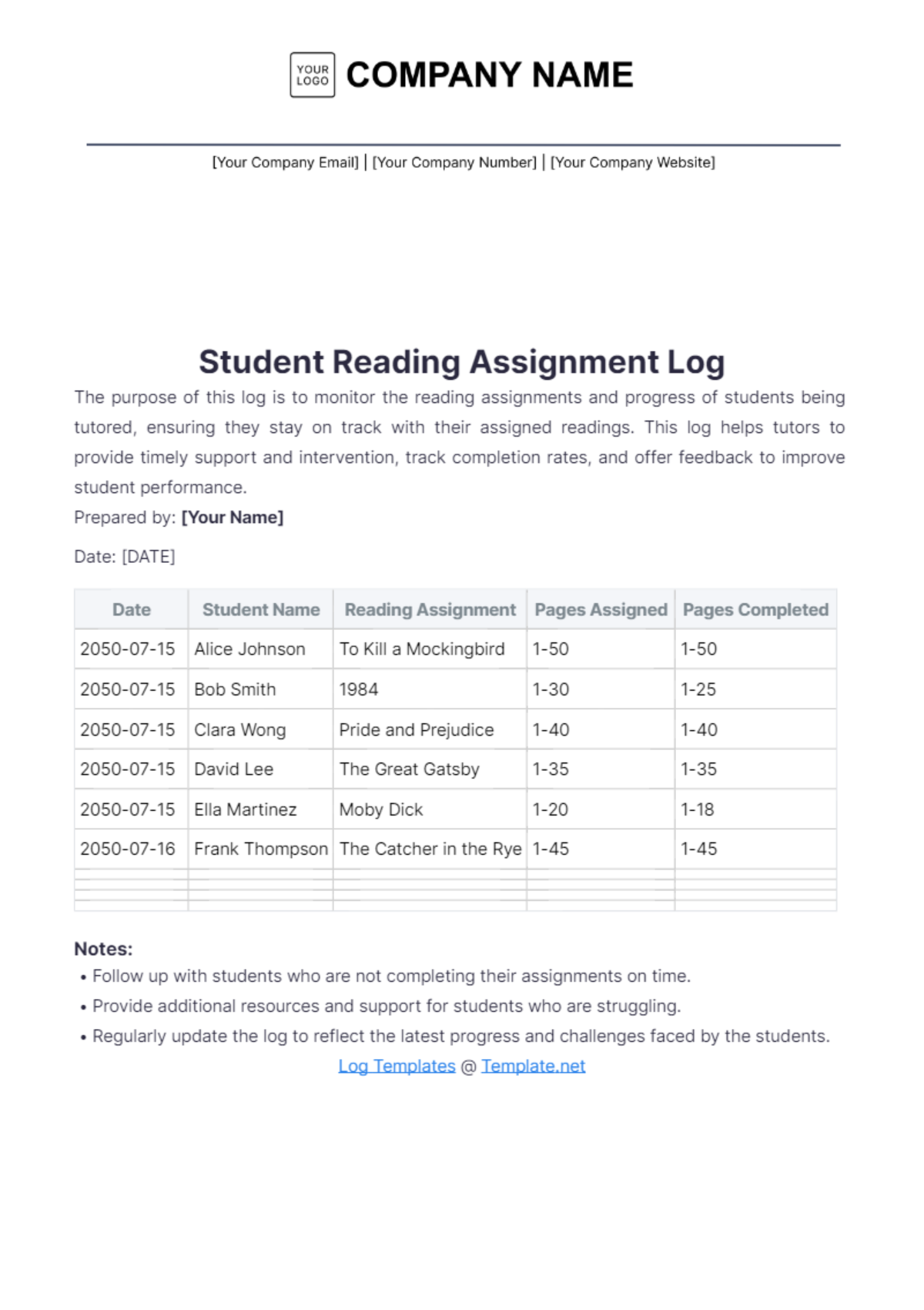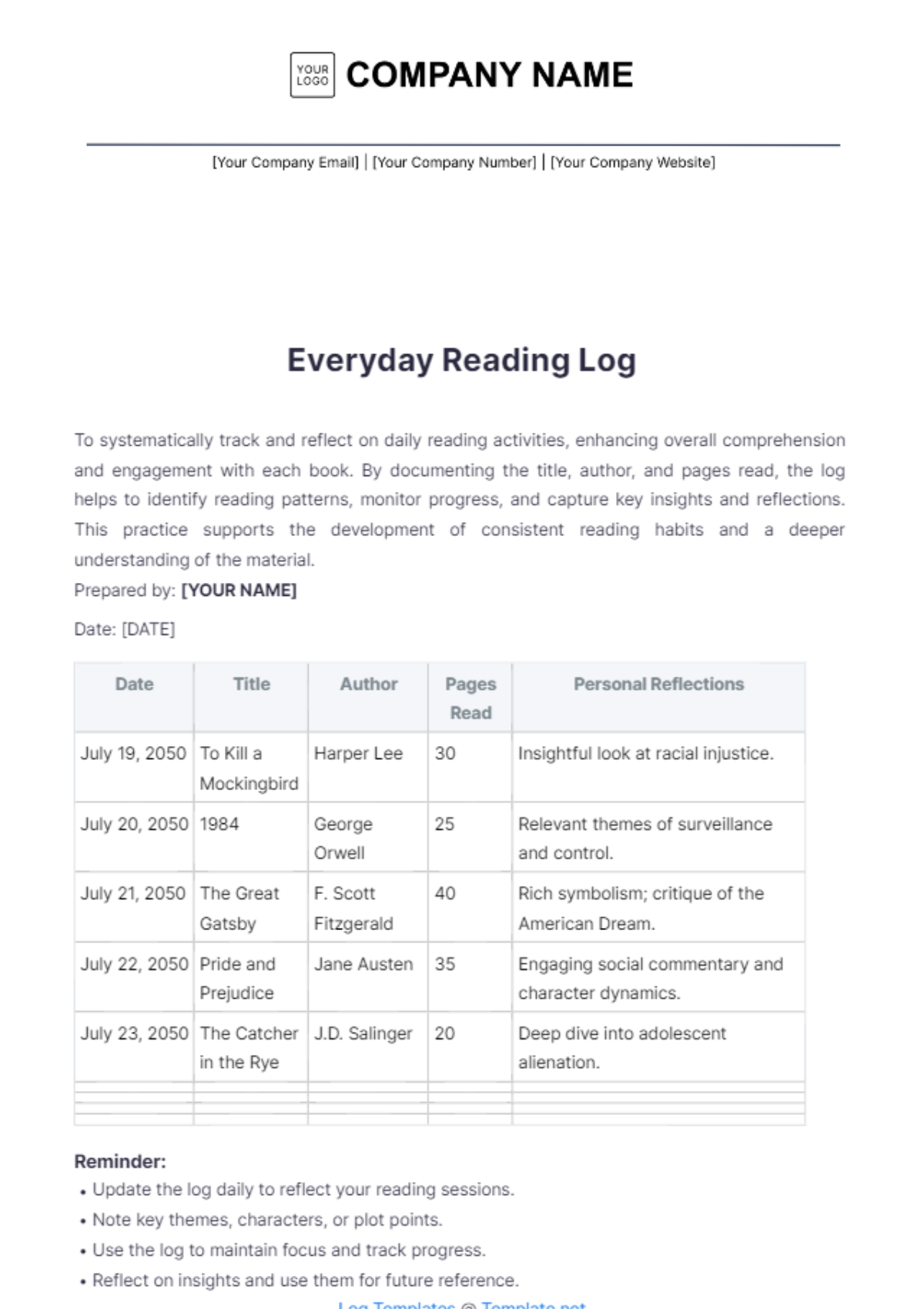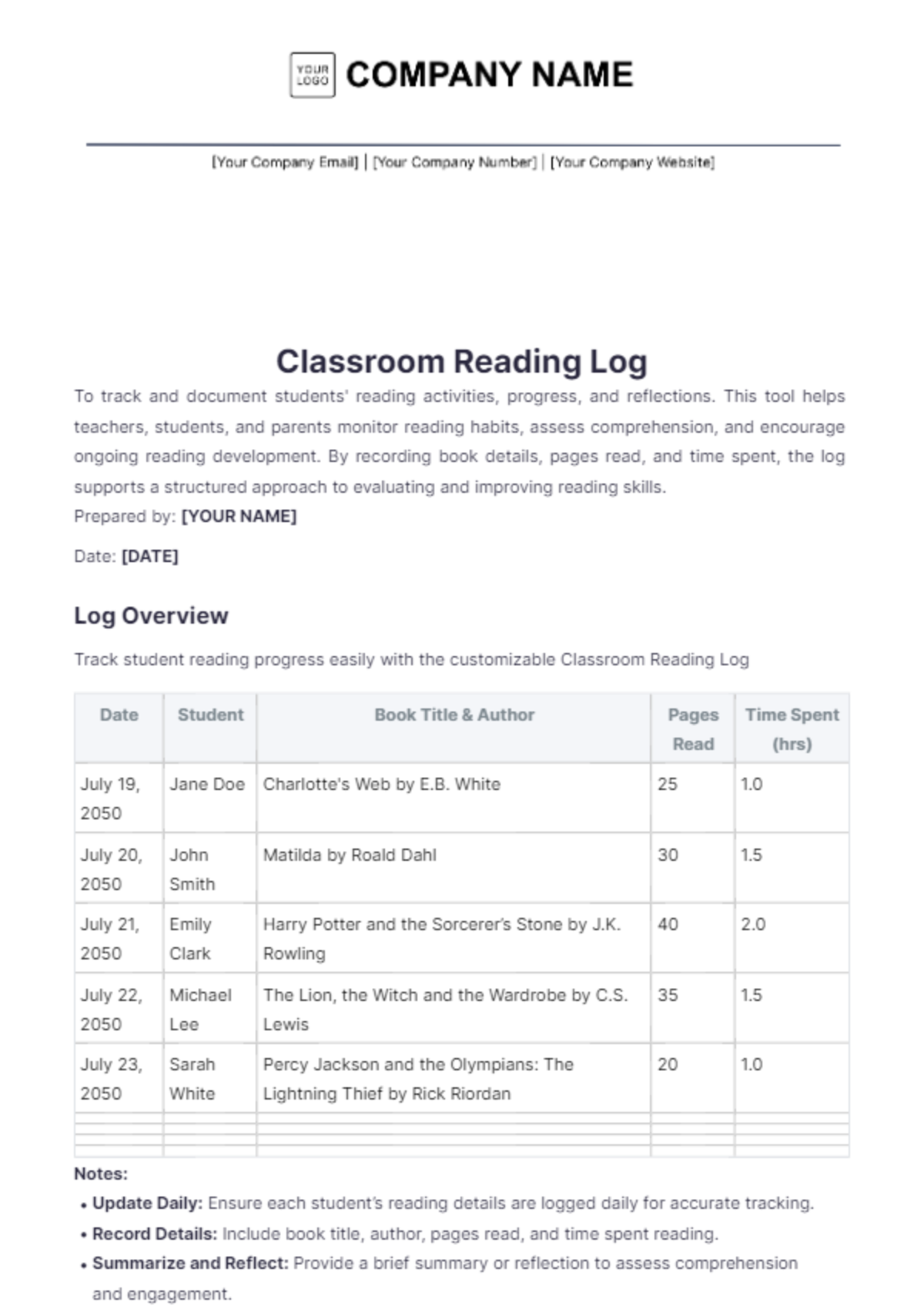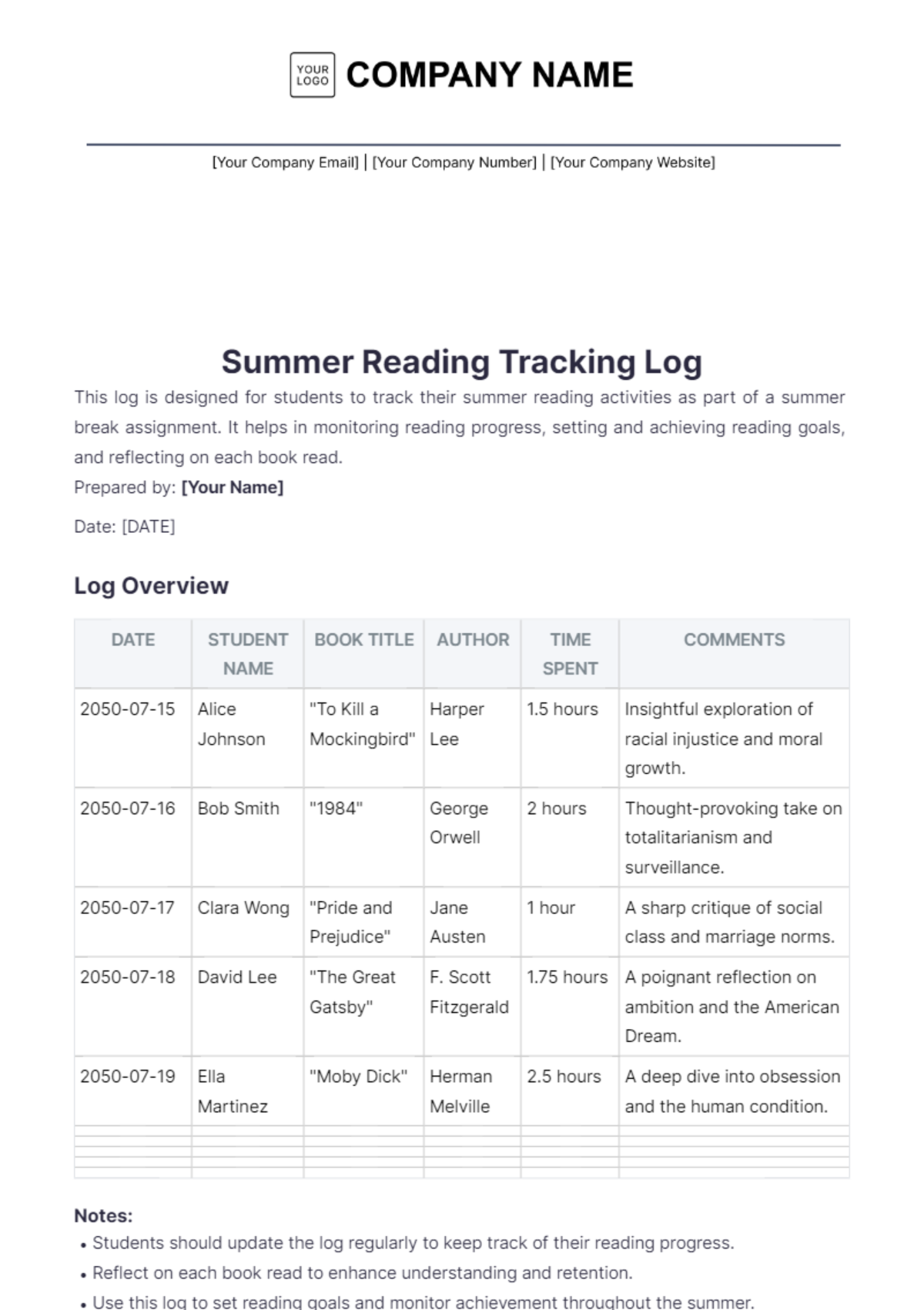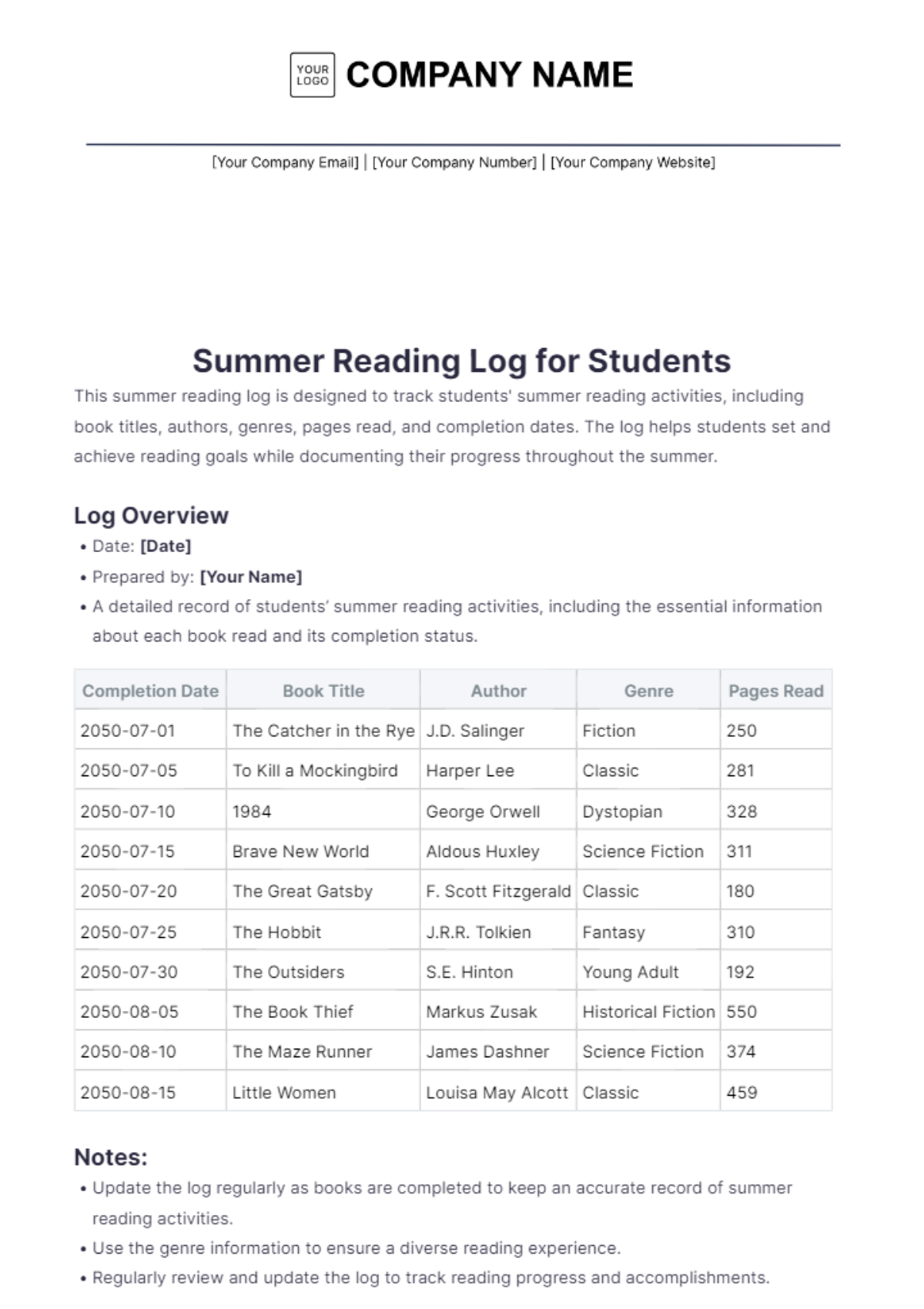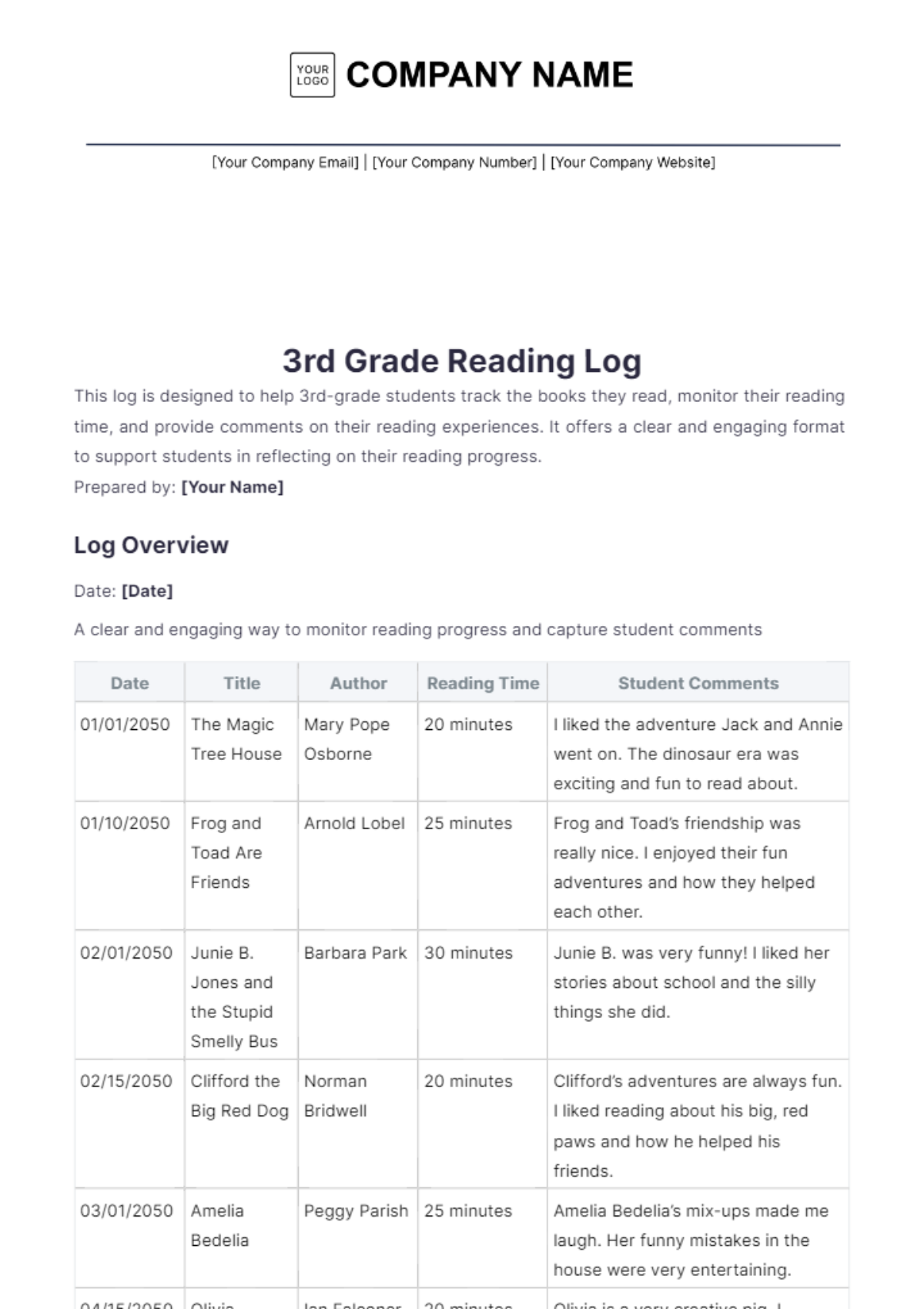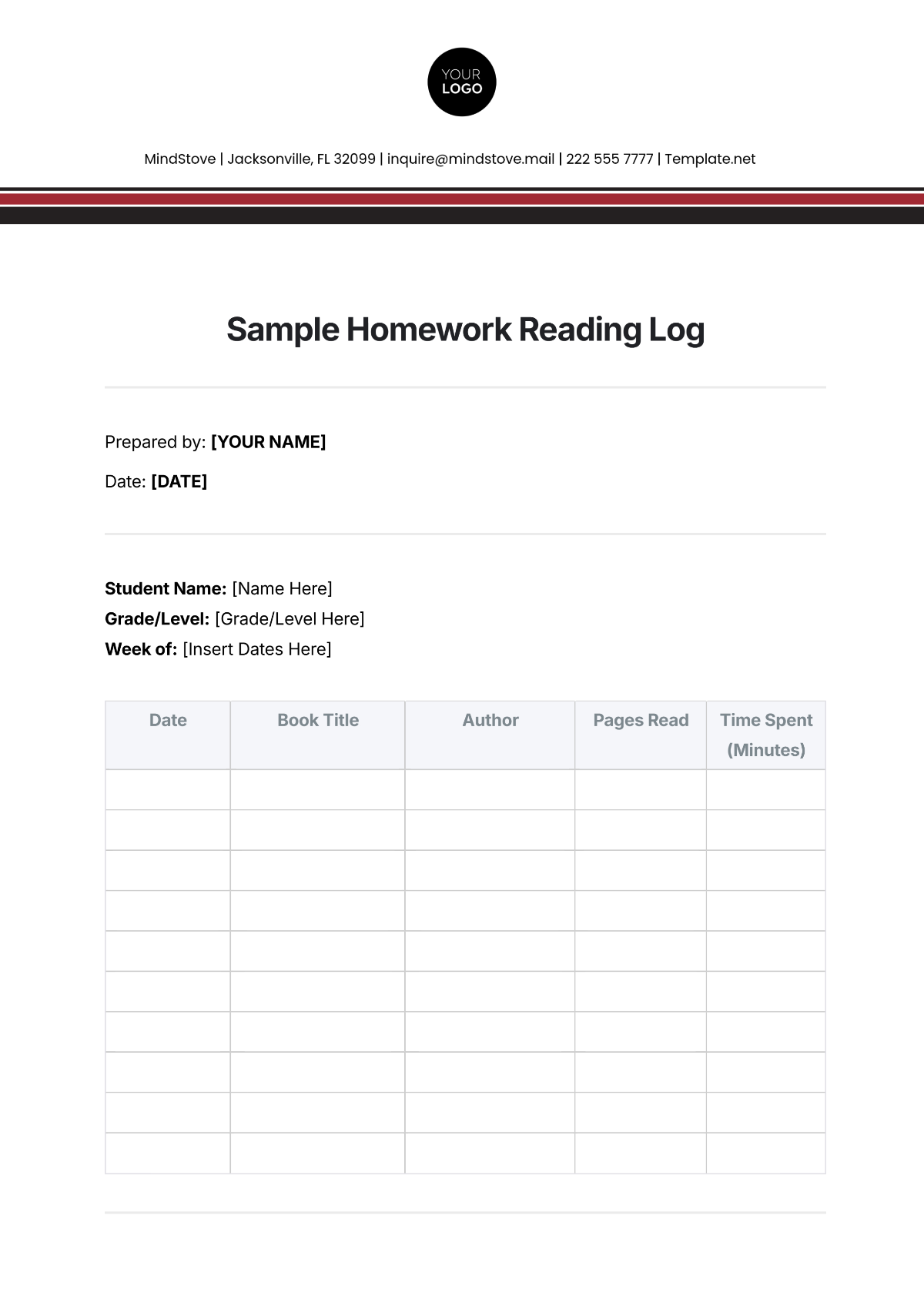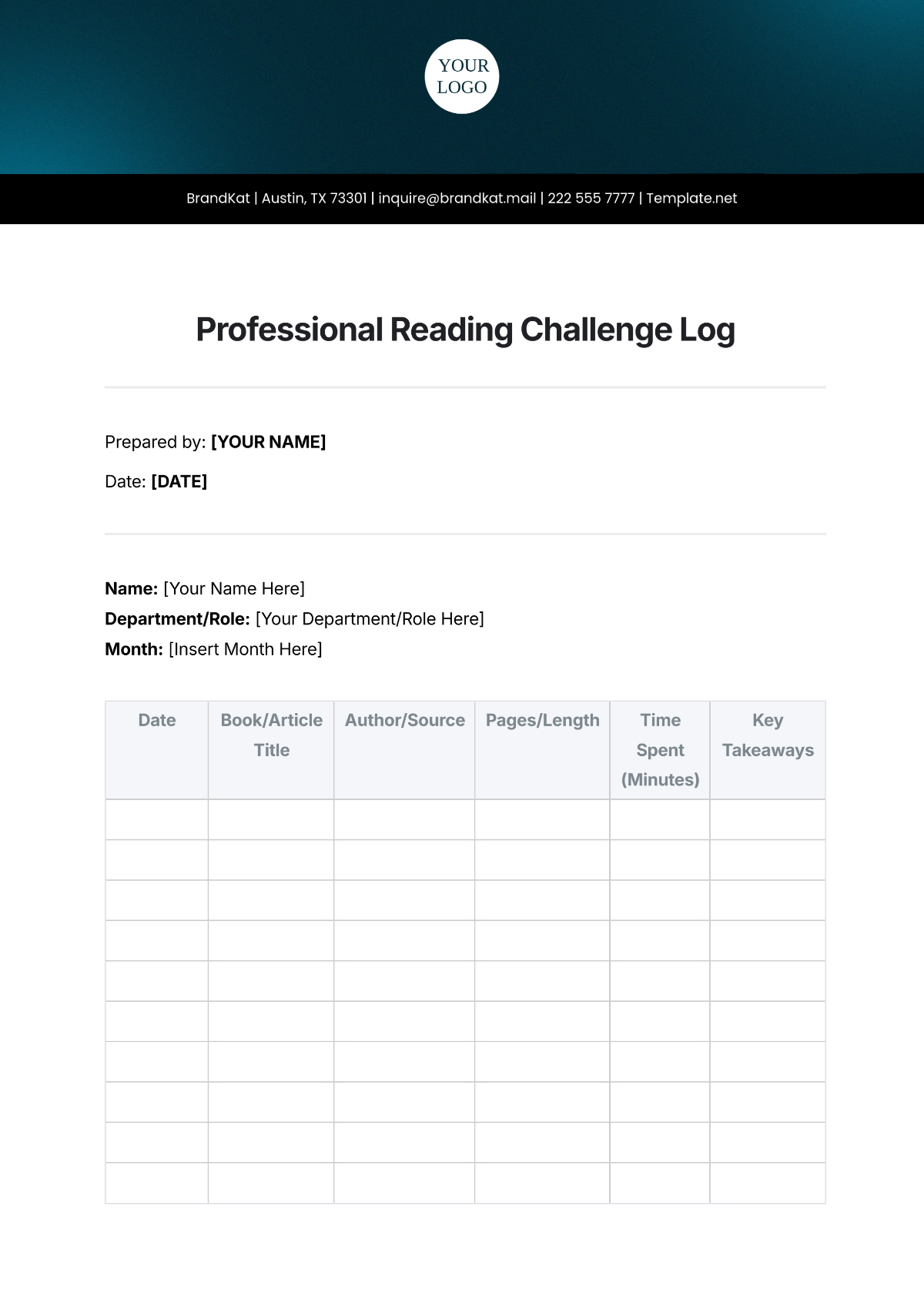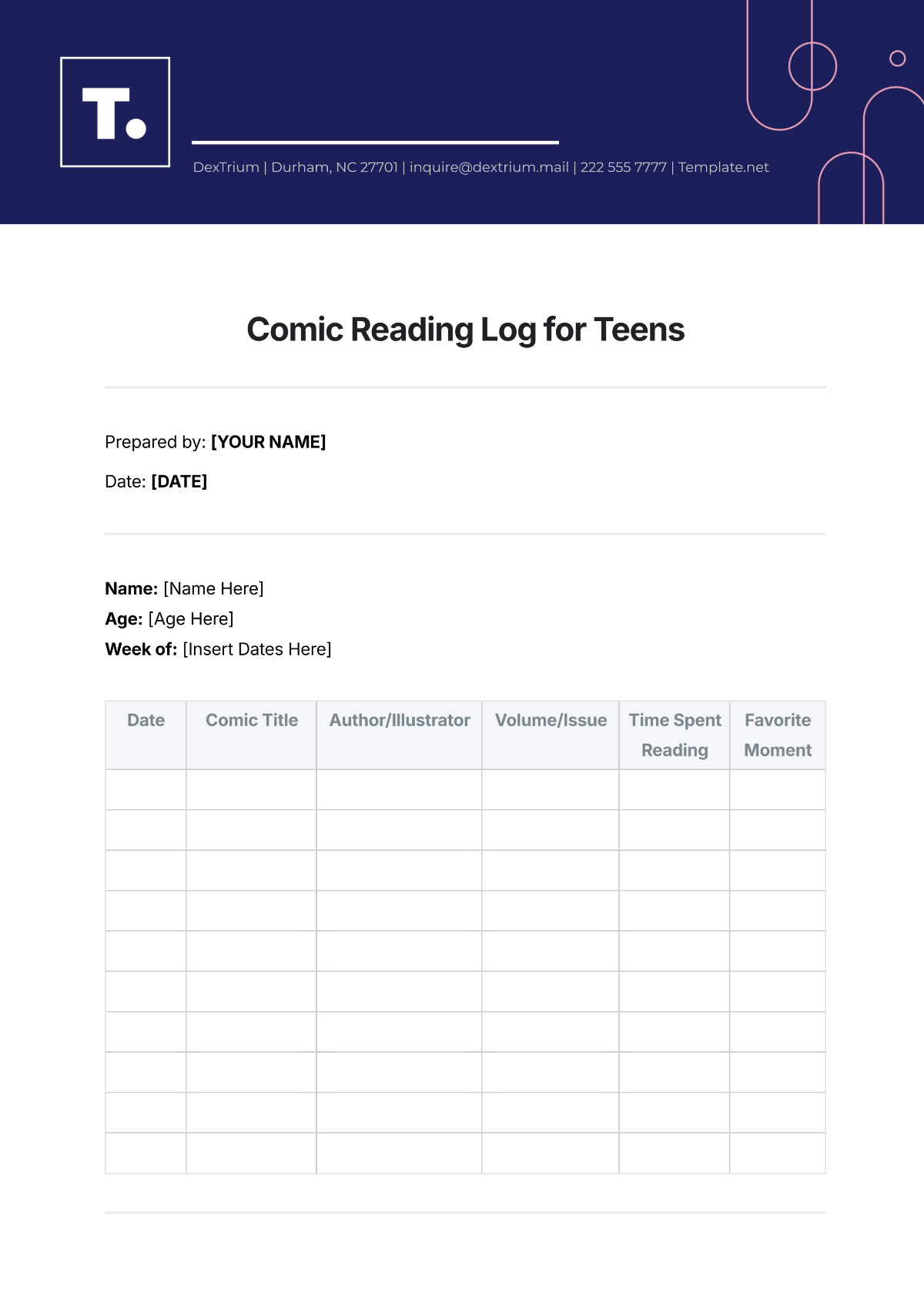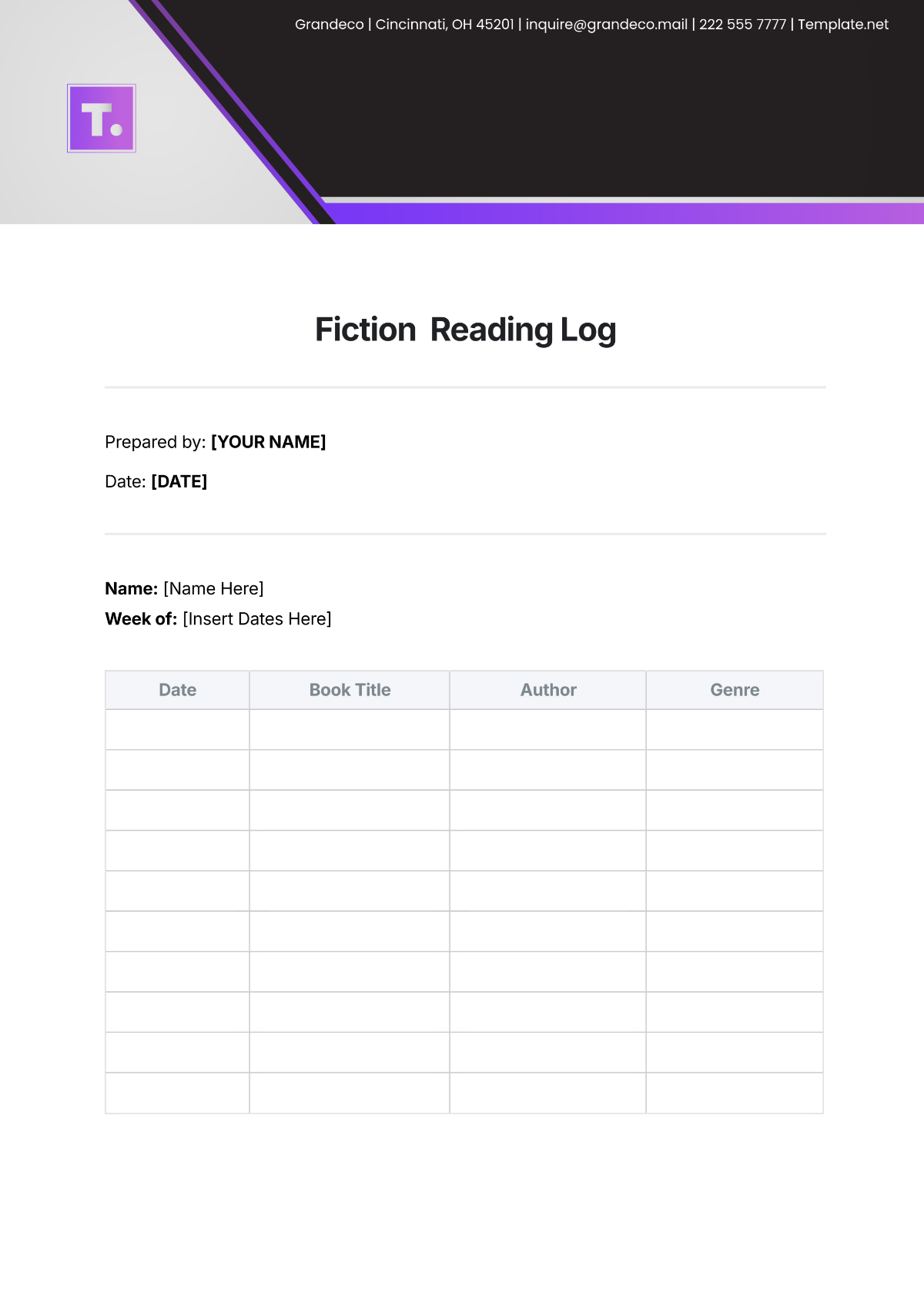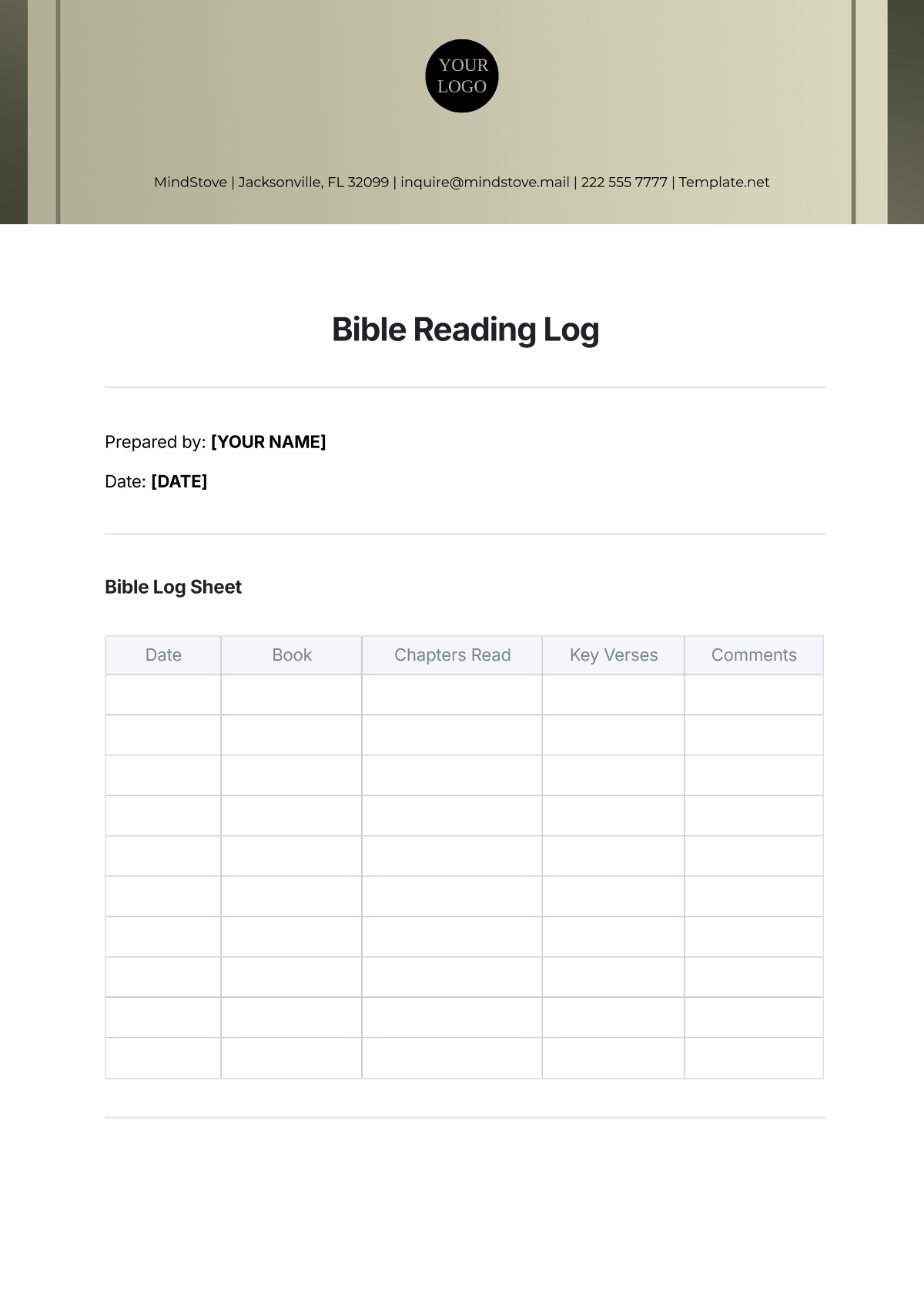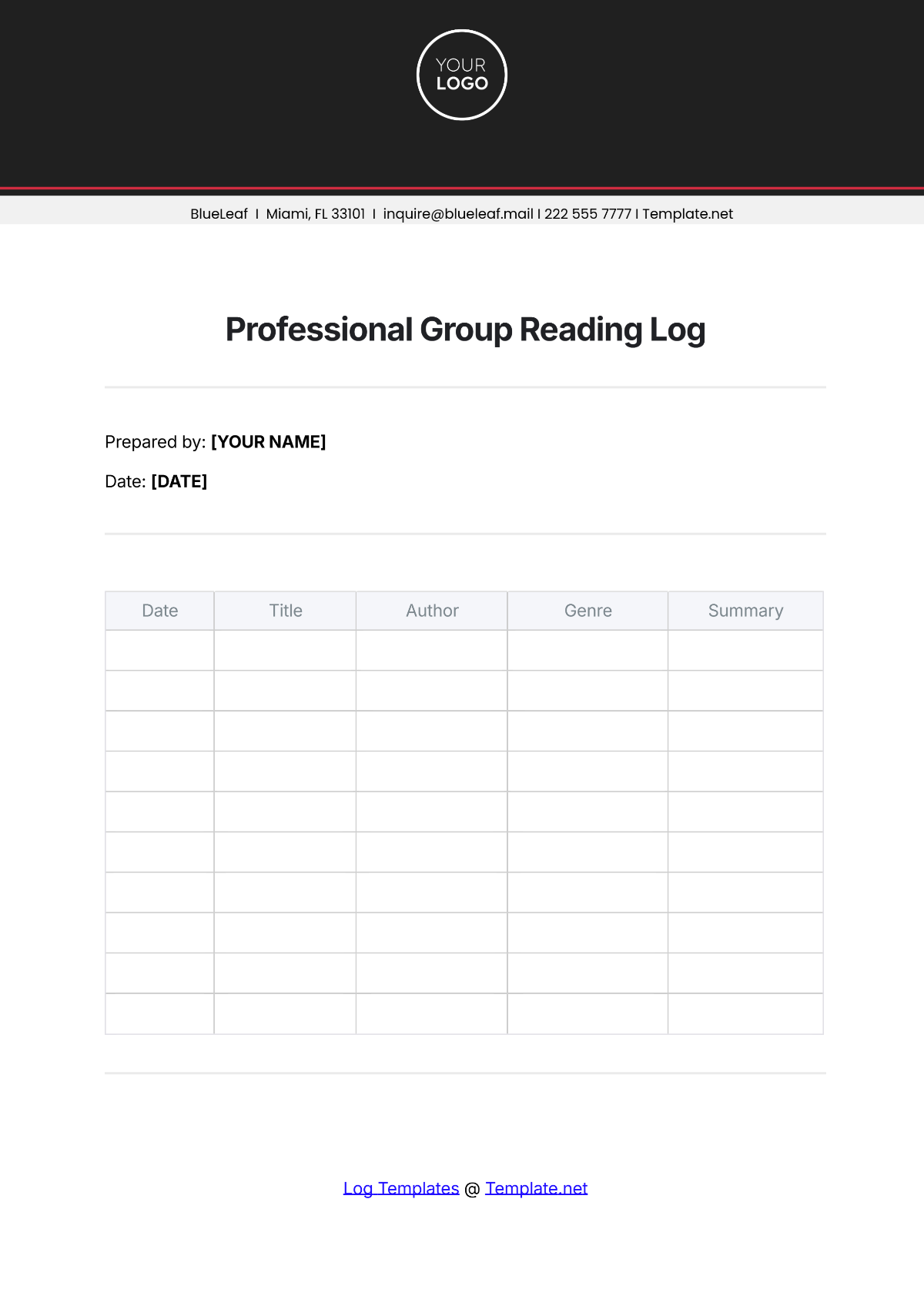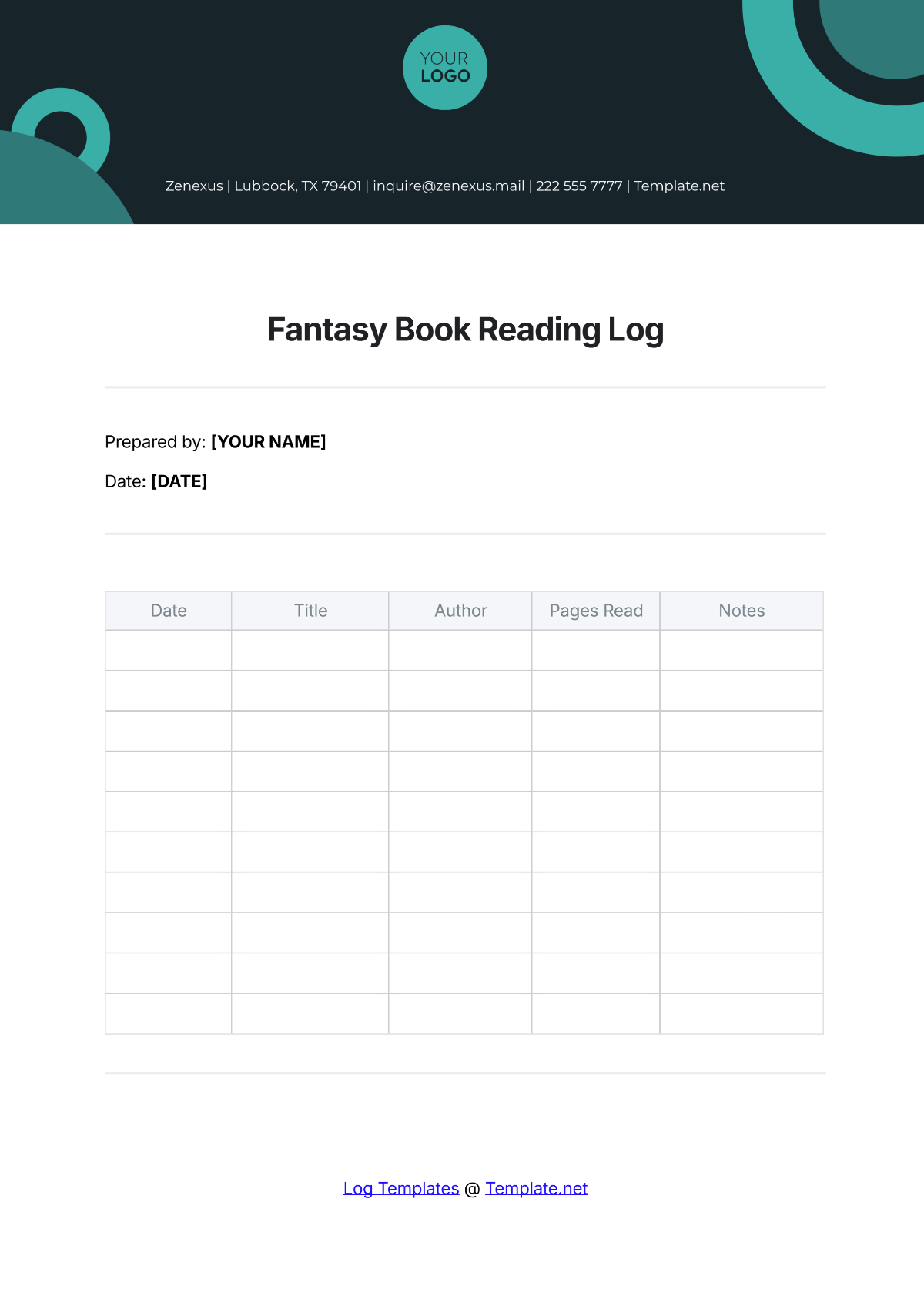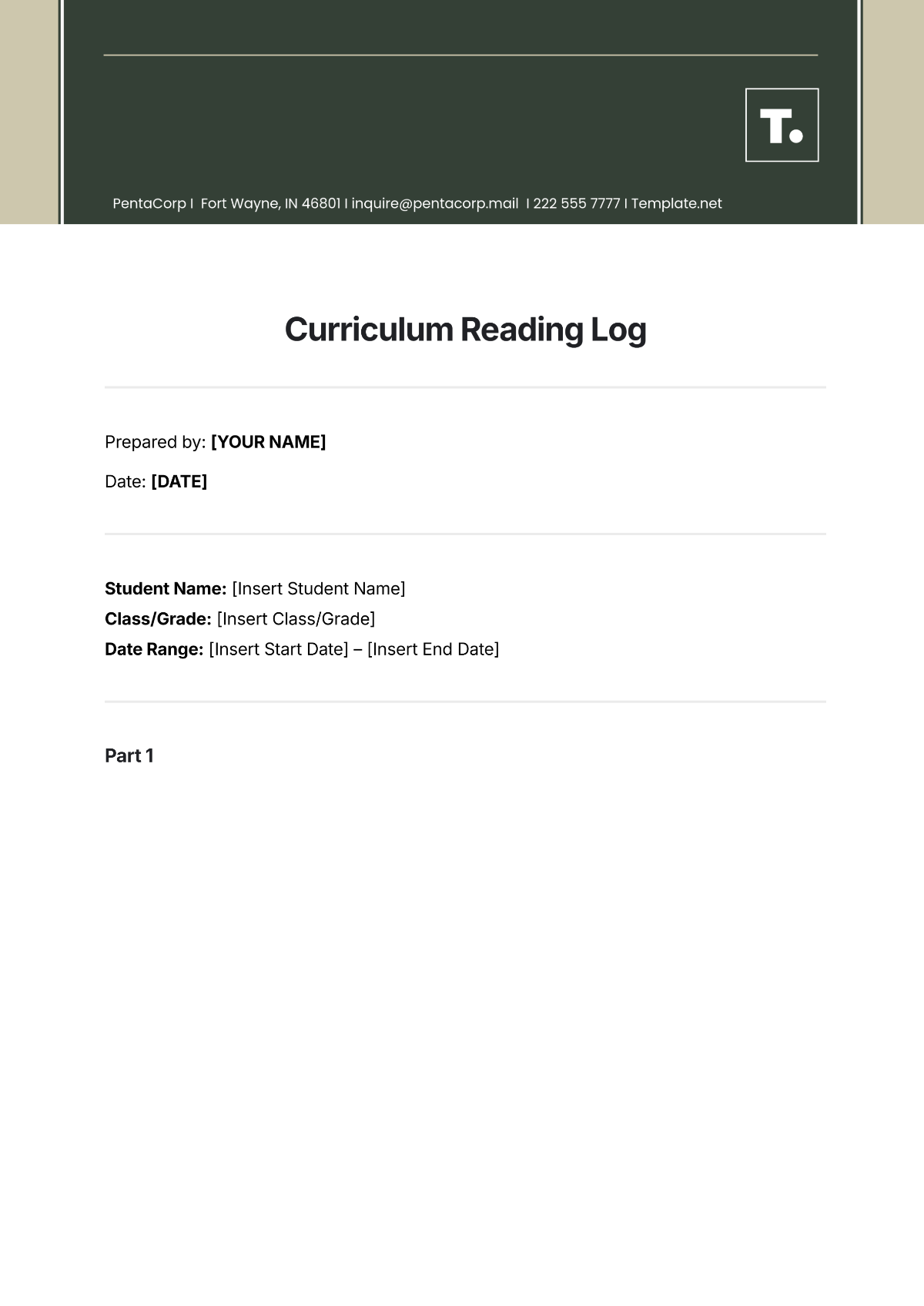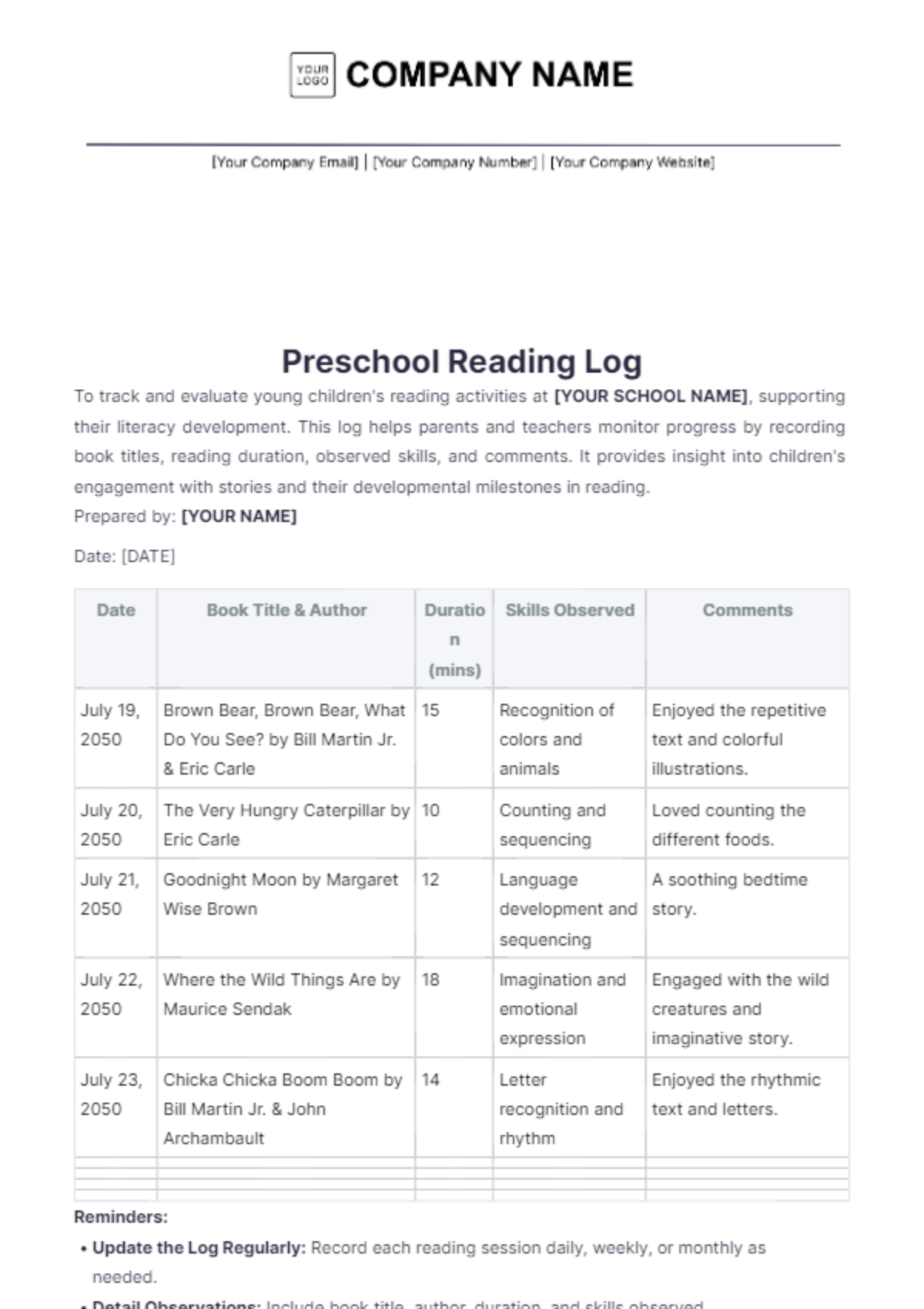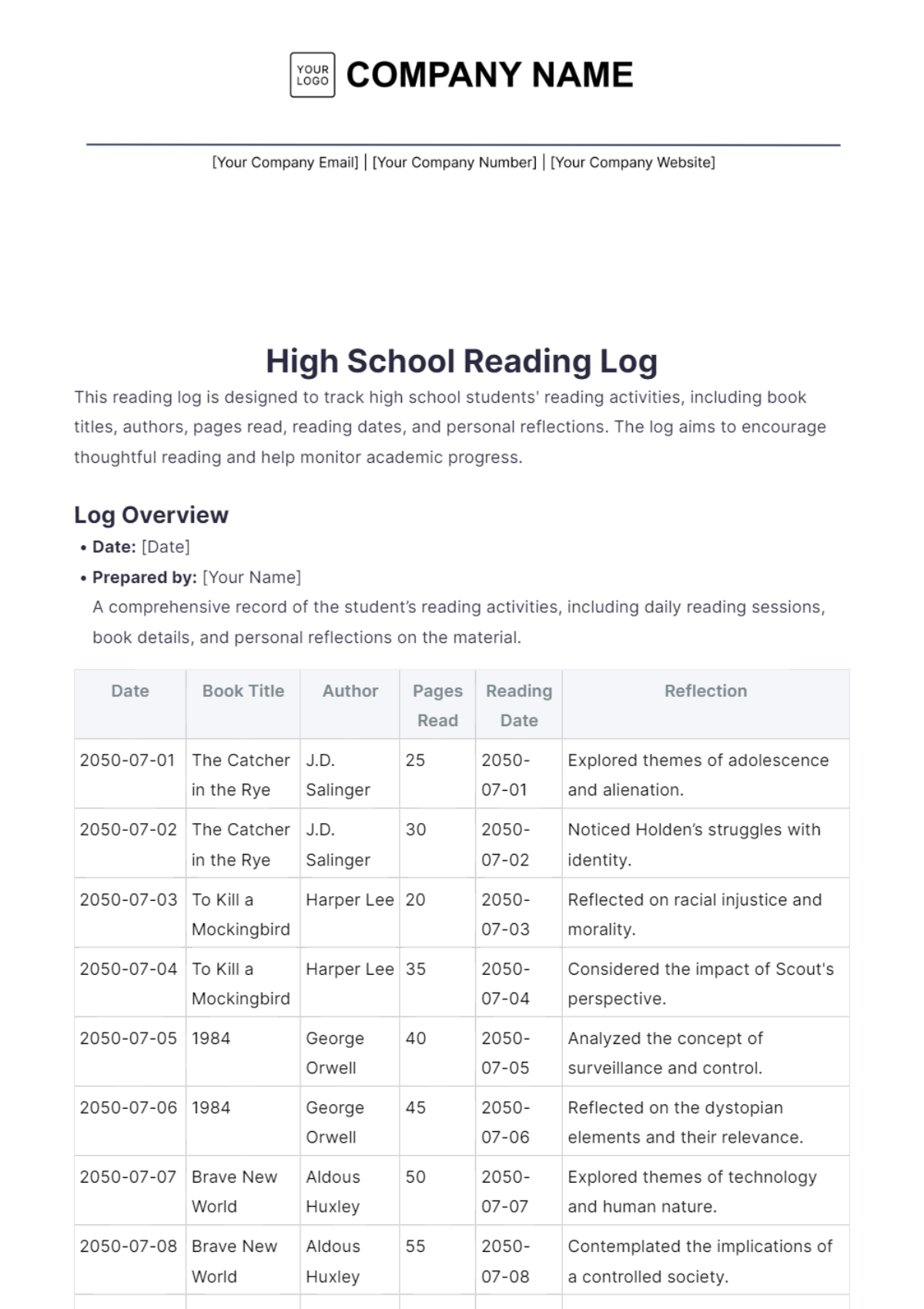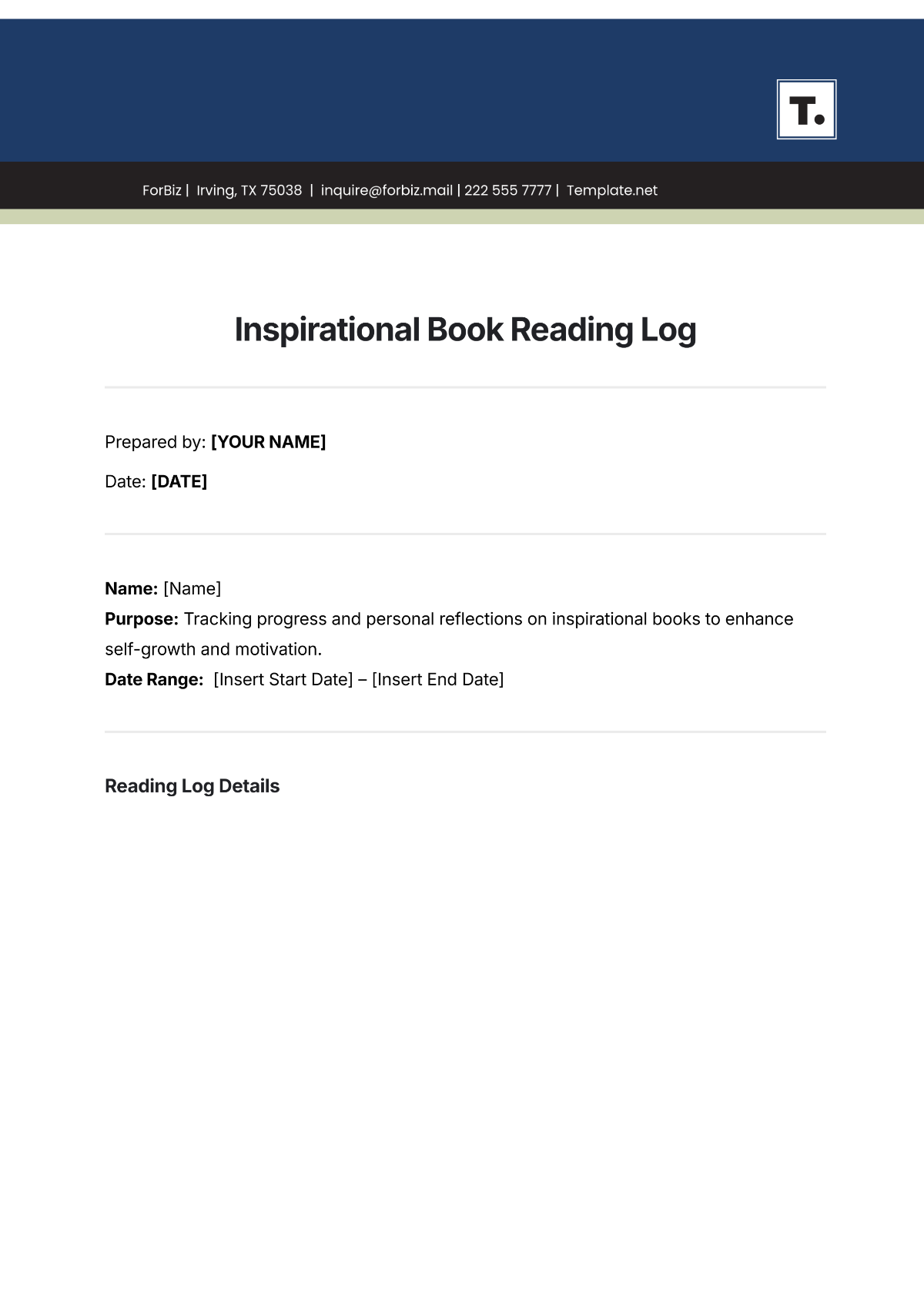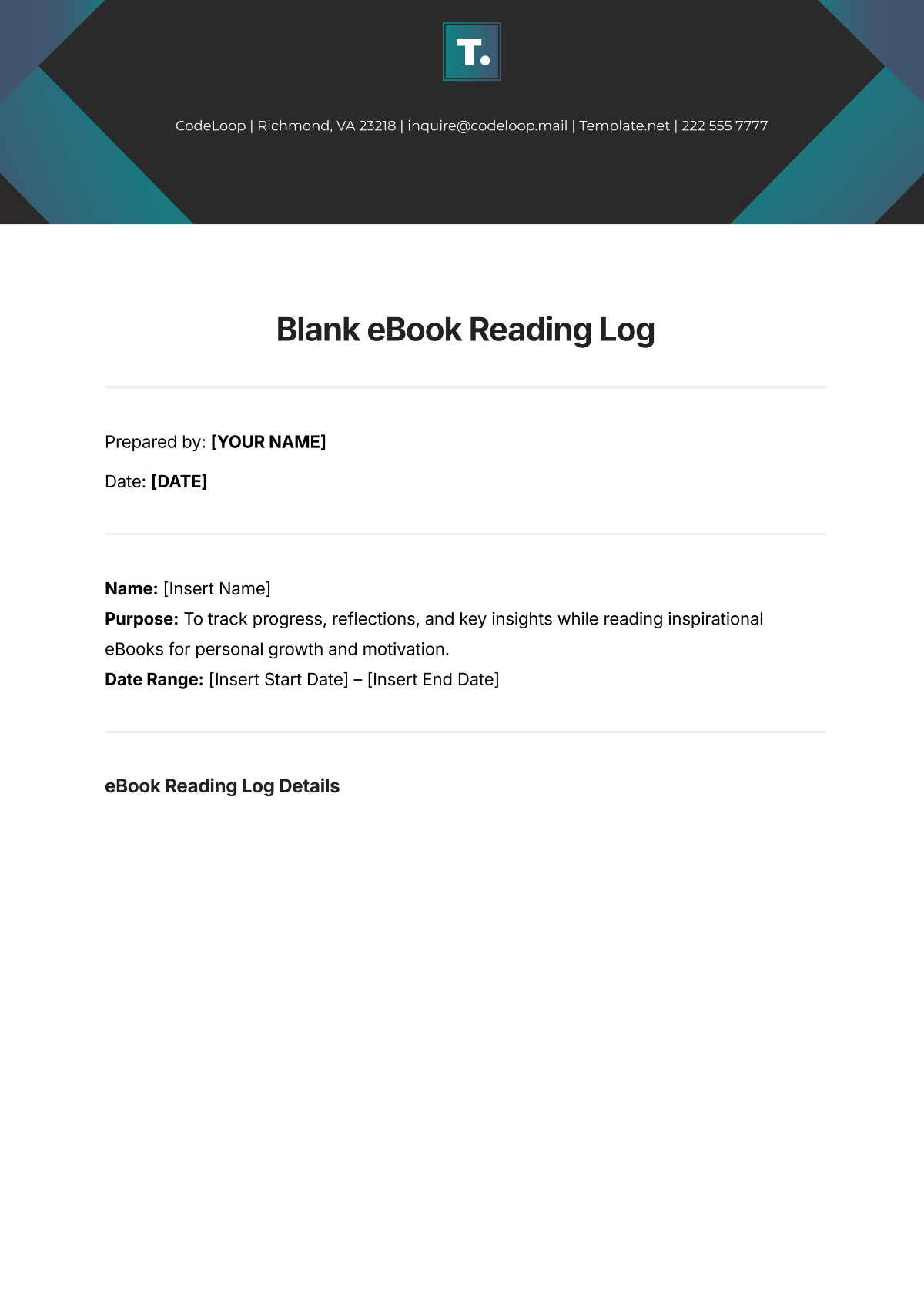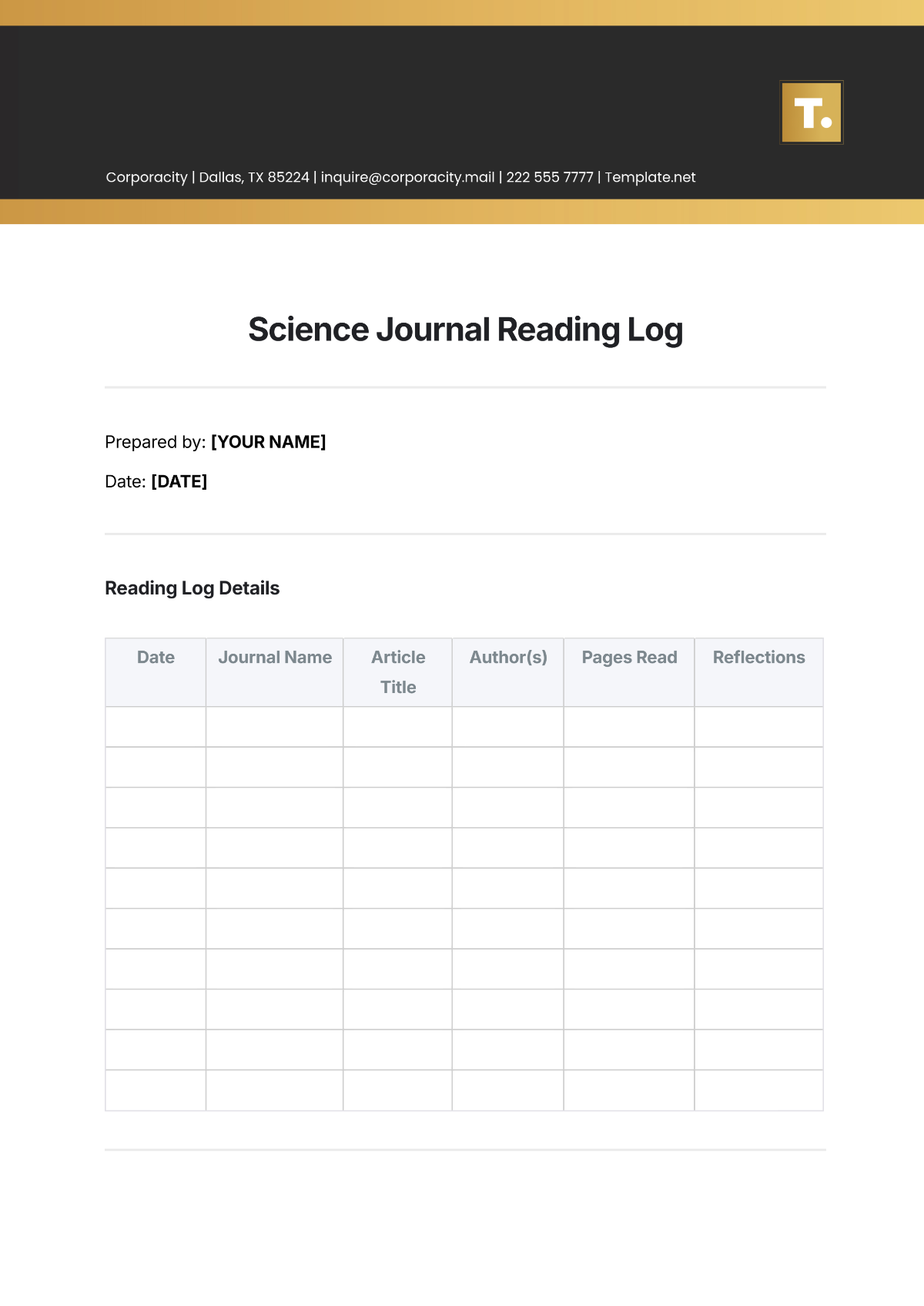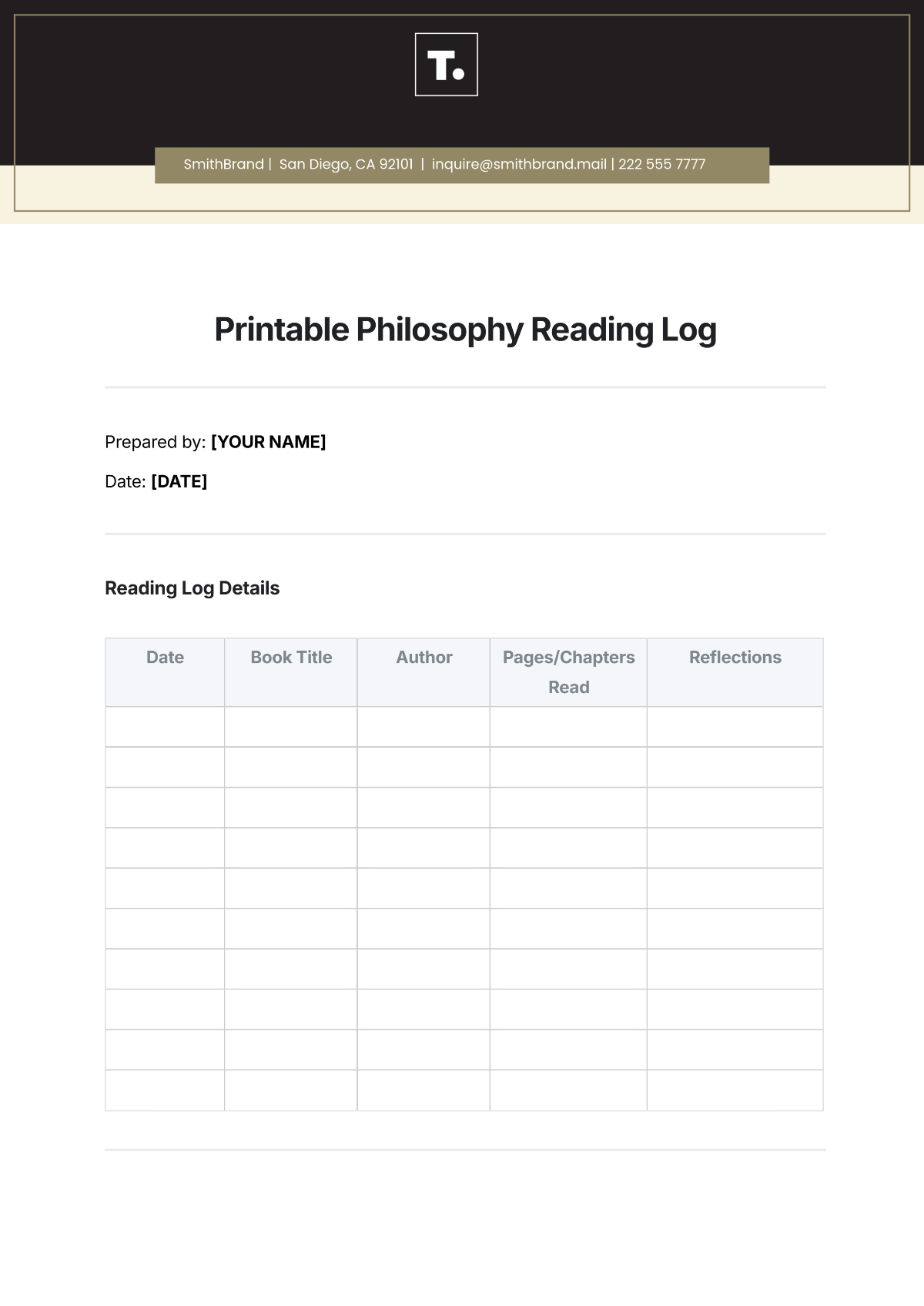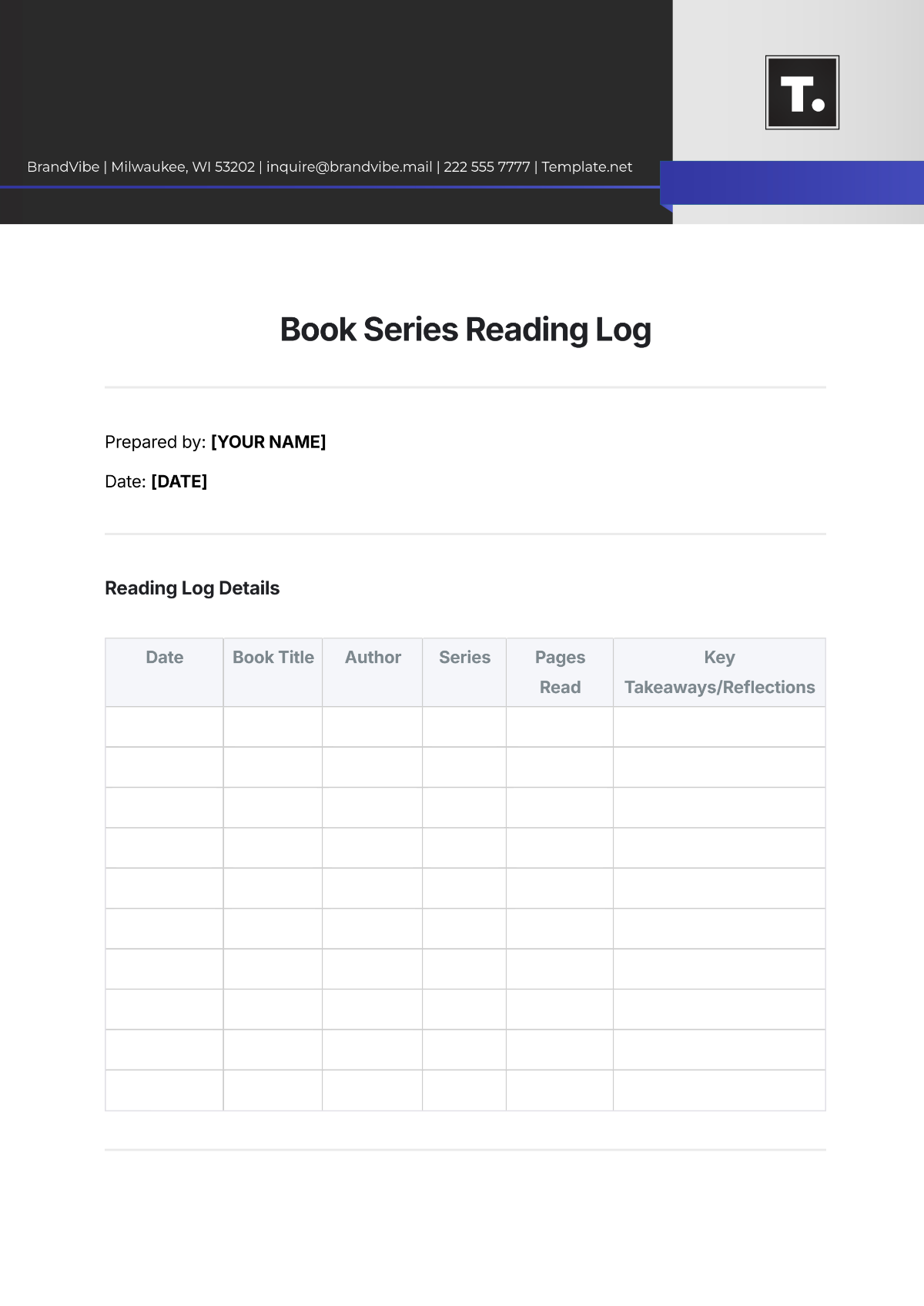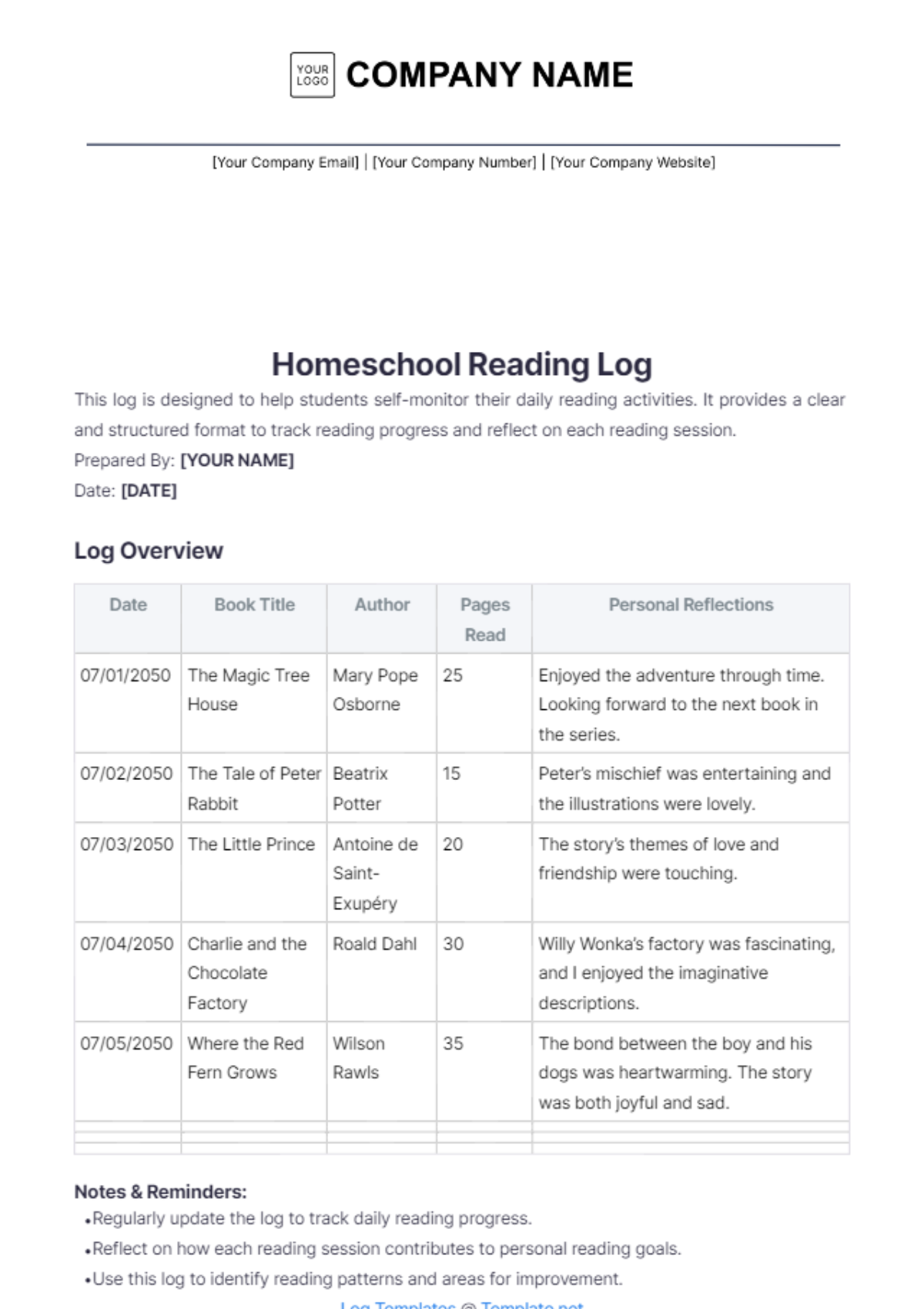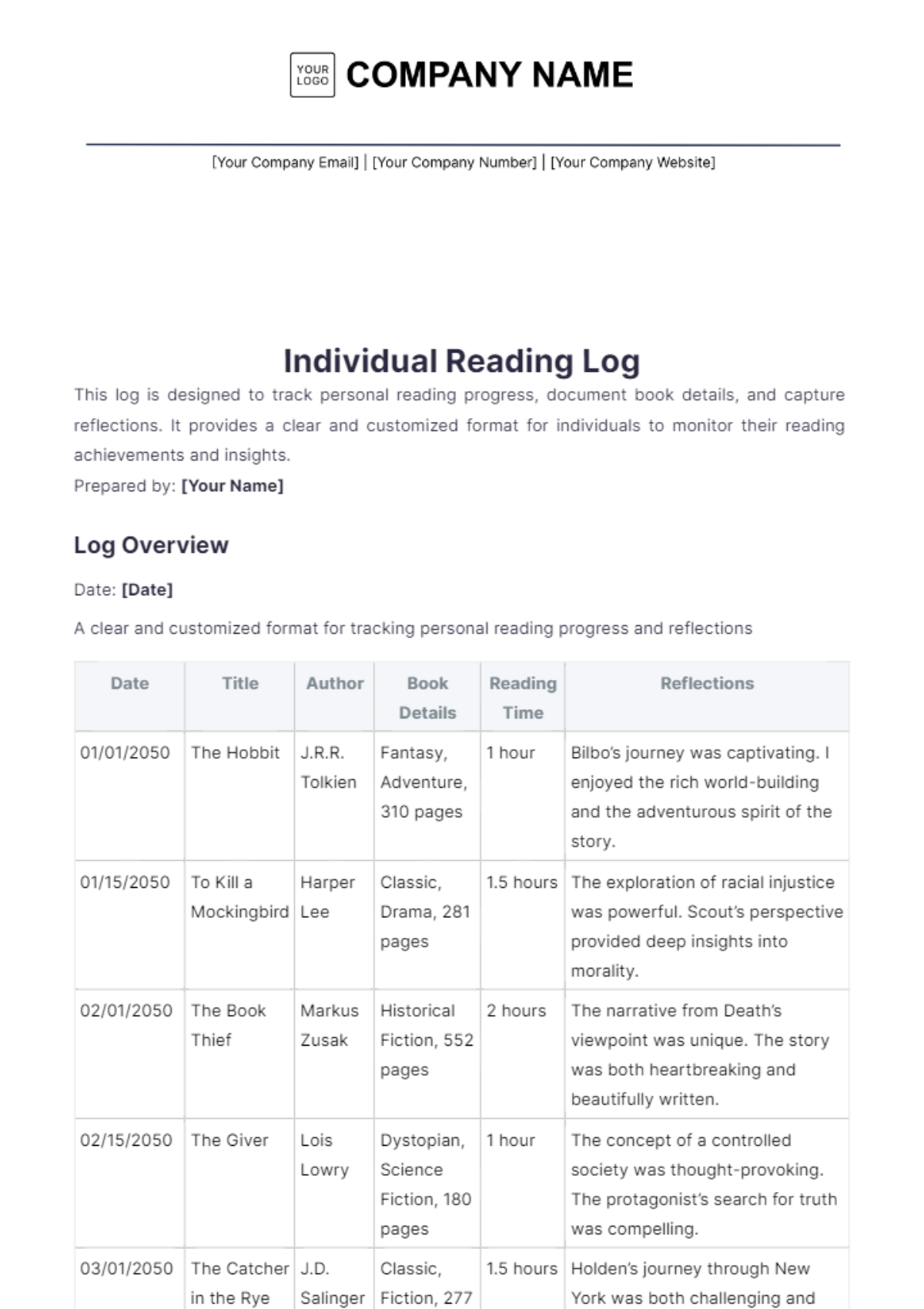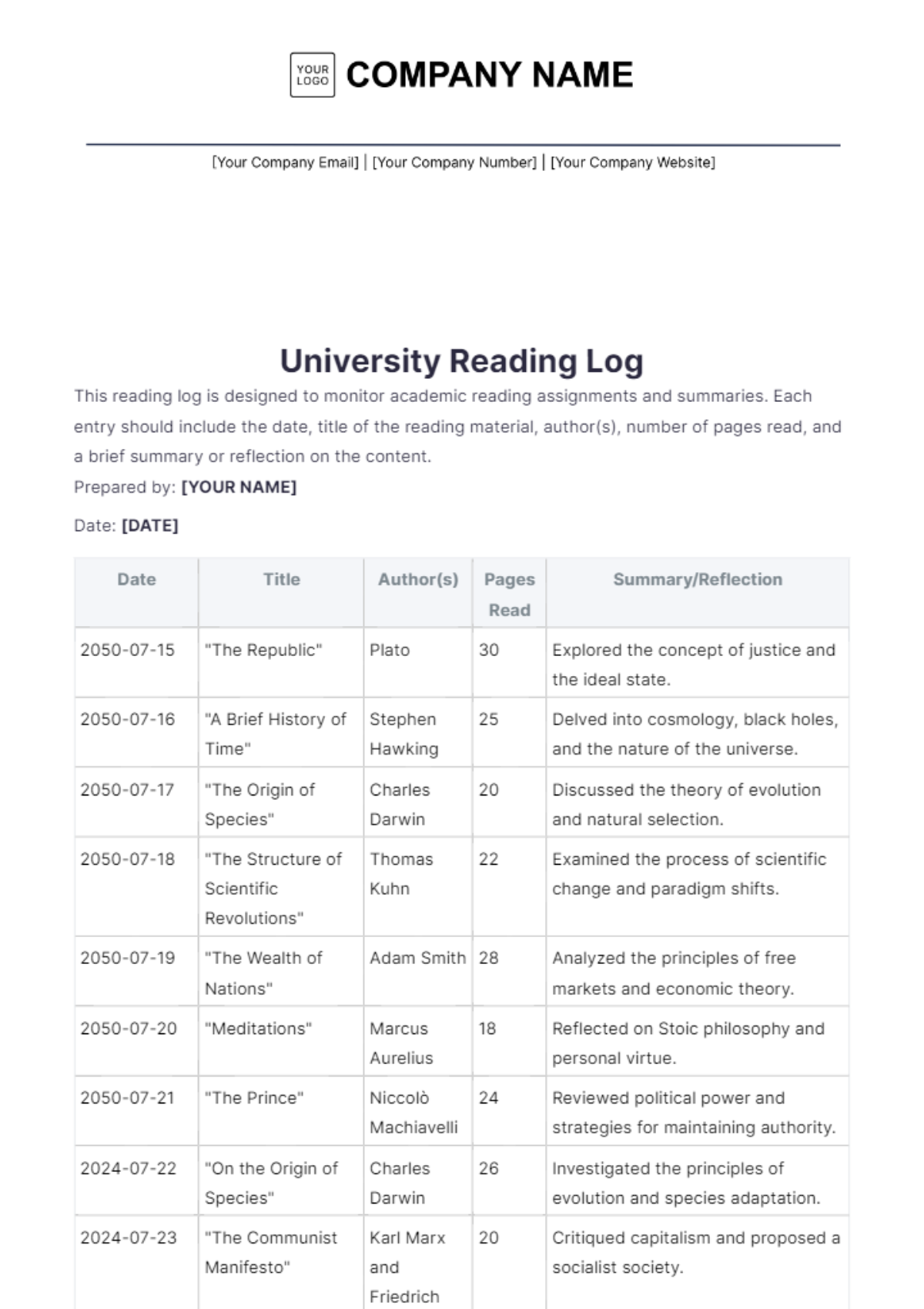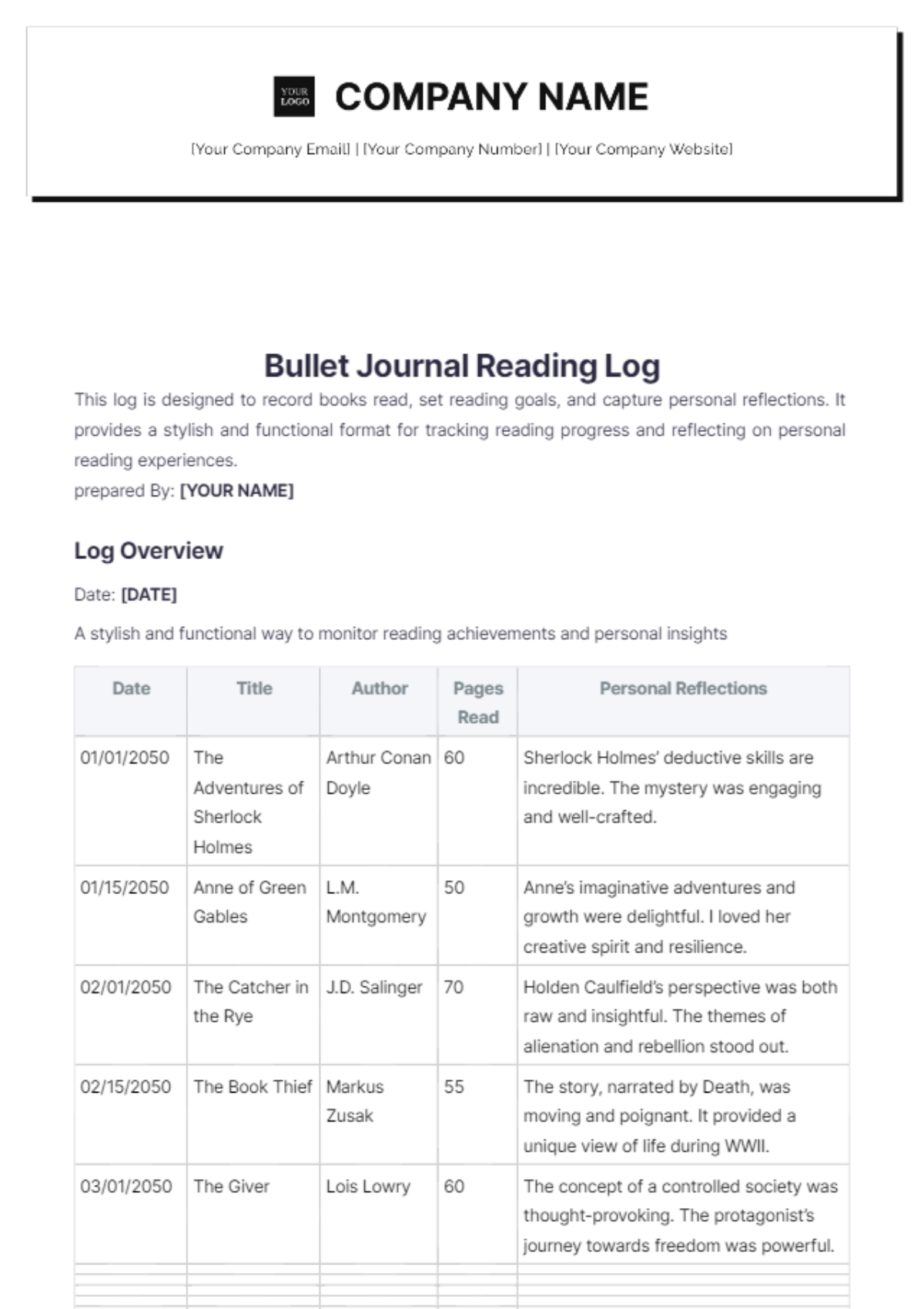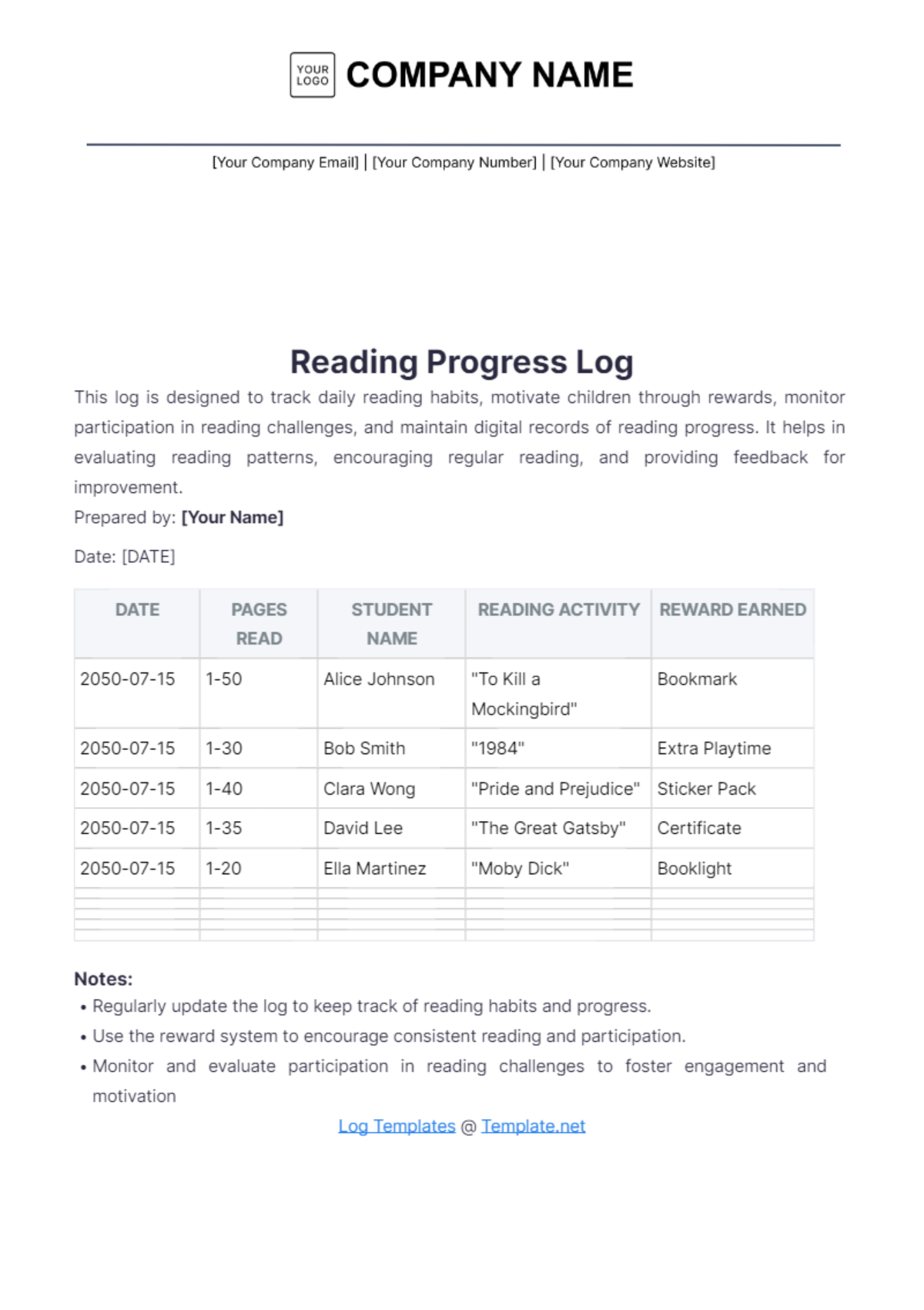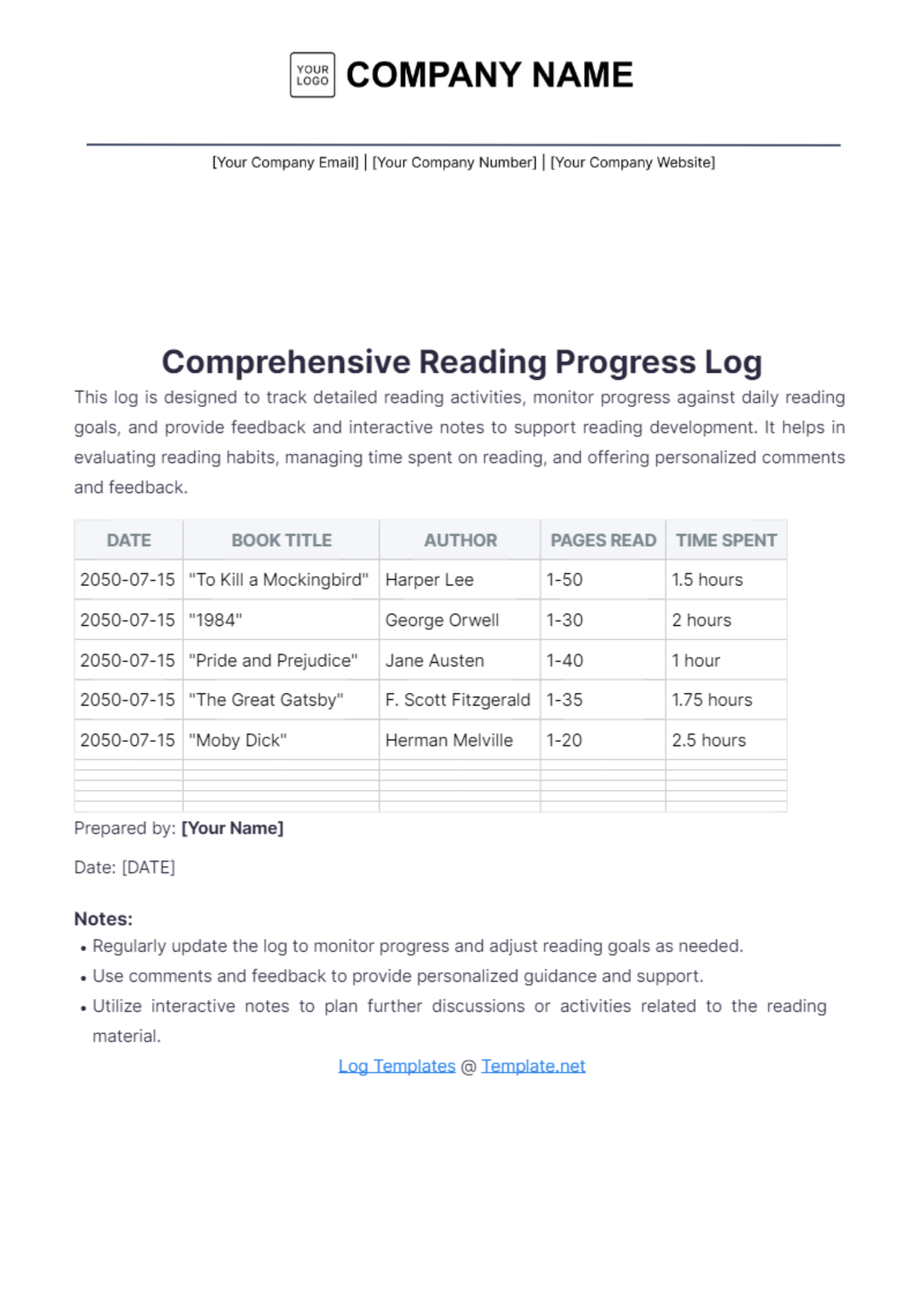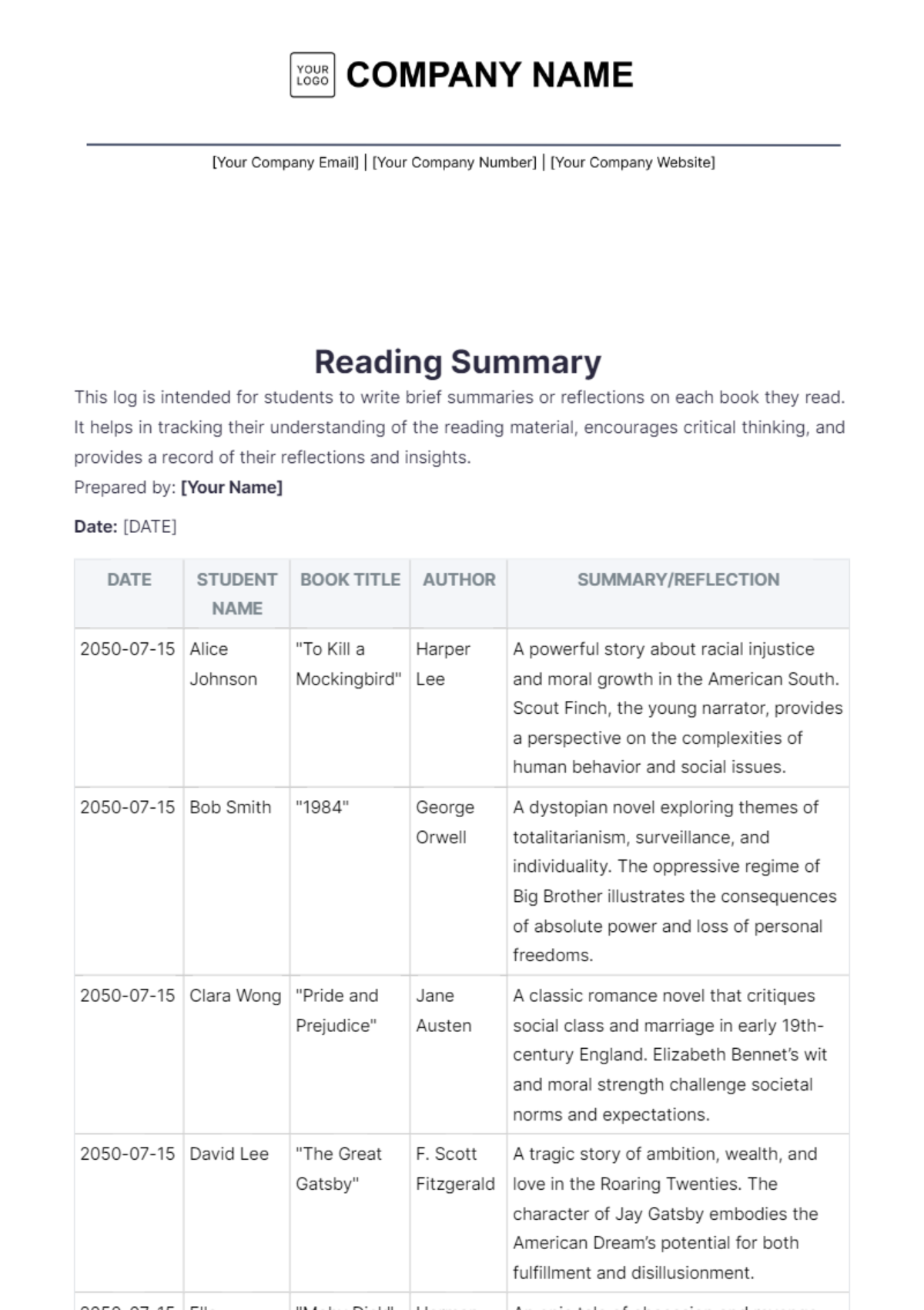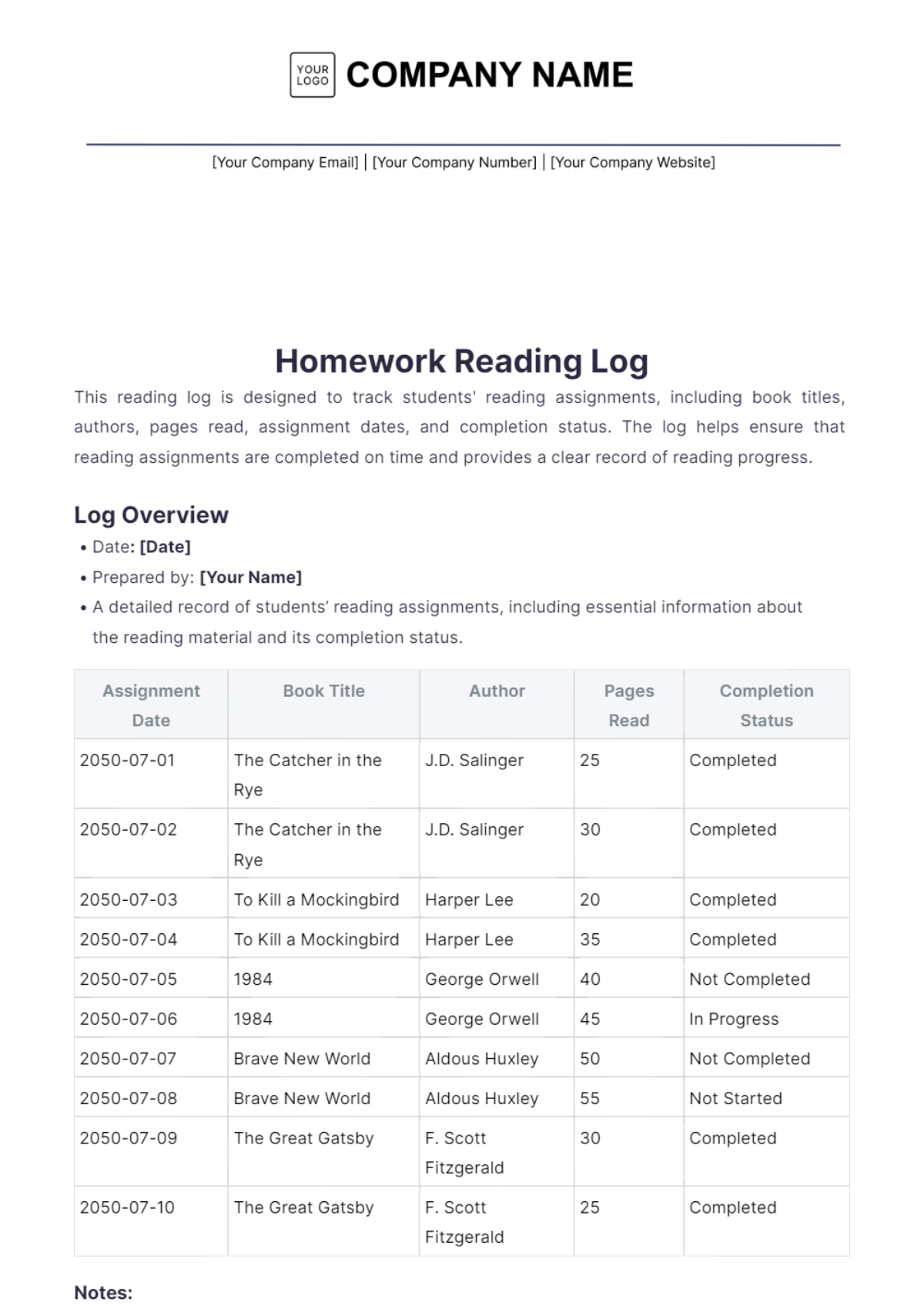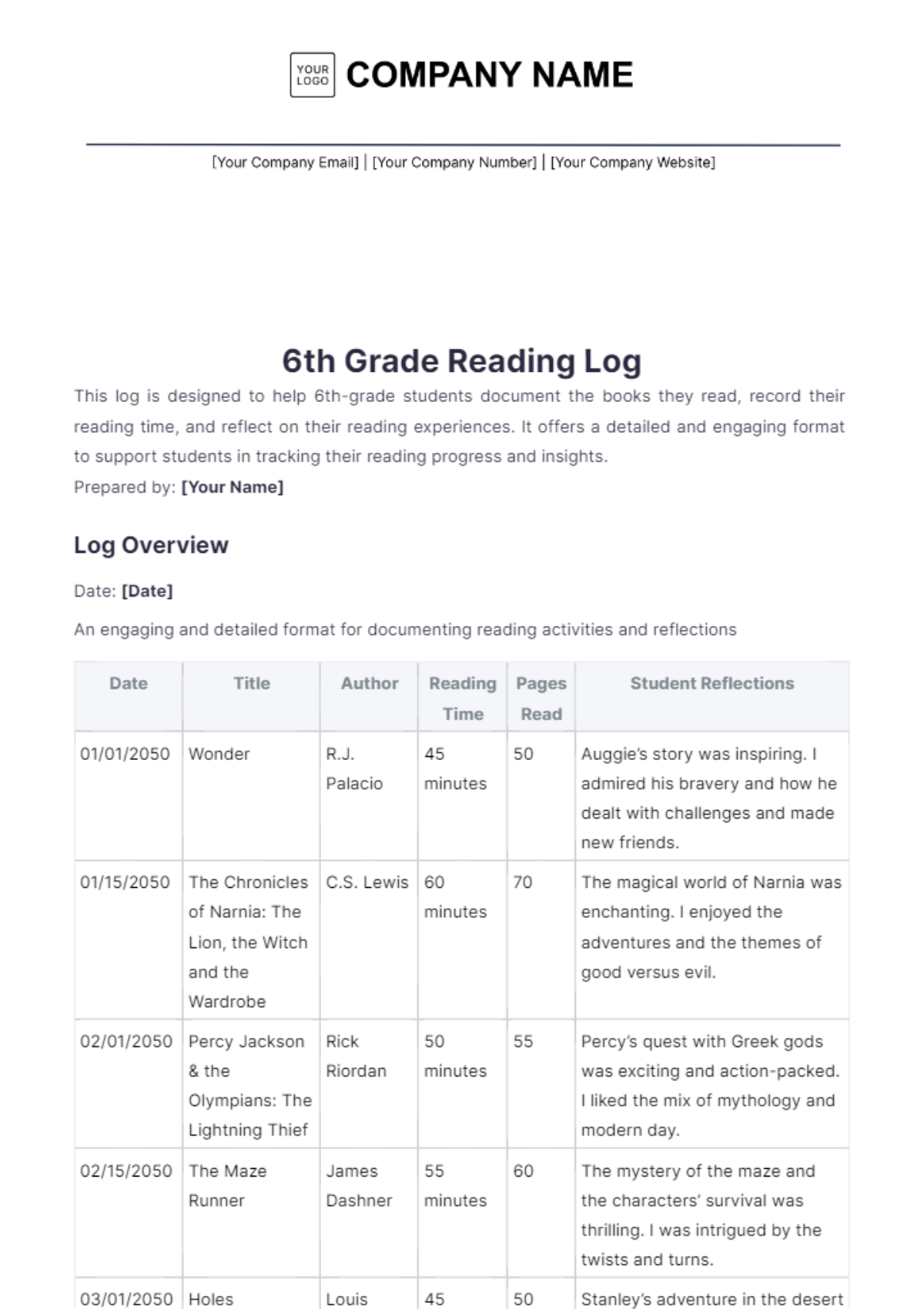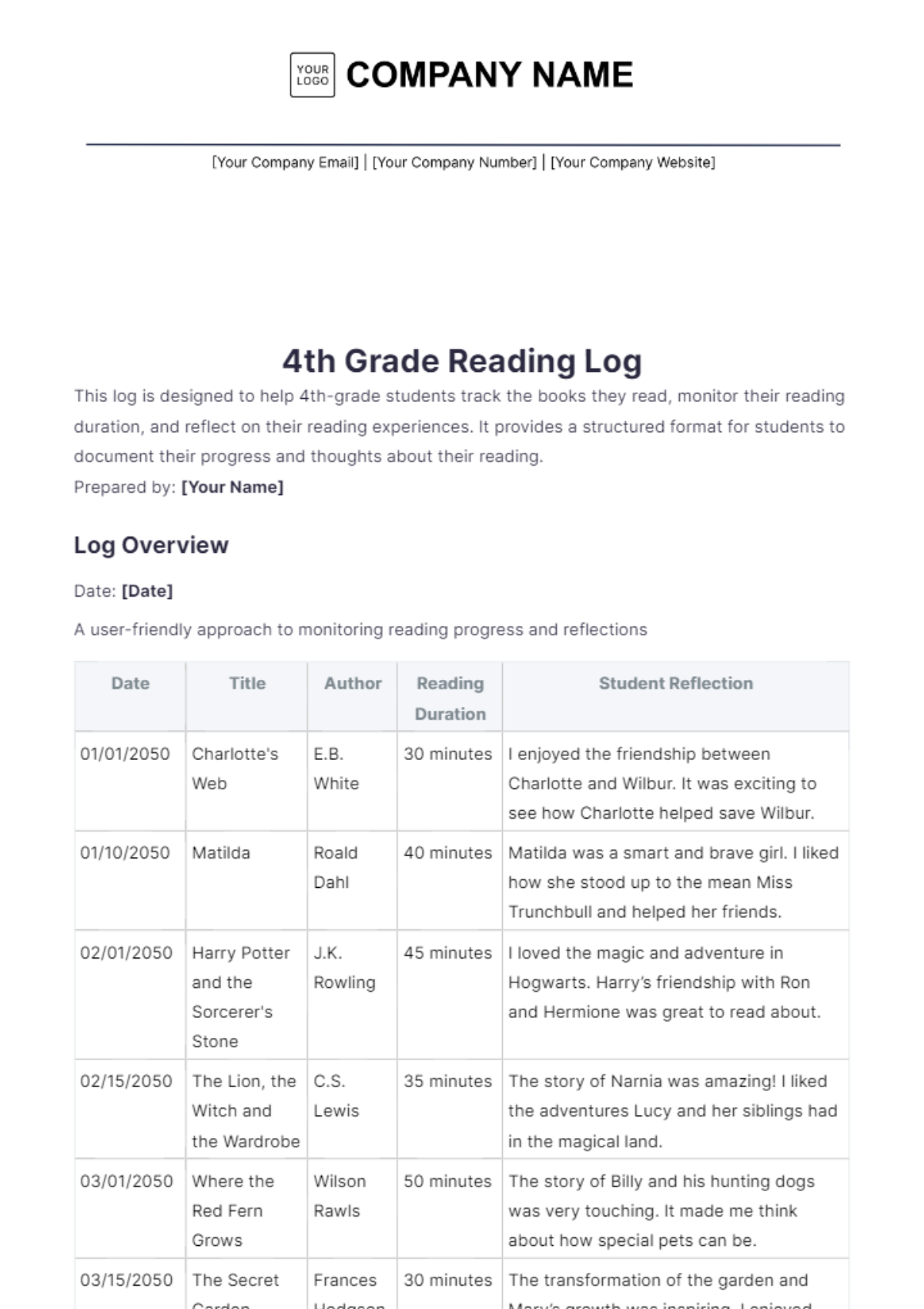University Reading Log
This reading log is designed to monitor academic reading assignments and summaries. Each entry should include the date, title of the reading material, author(s), number of pages read, and a brief summary or reflection on the content.
Prepared by: [YOUR NAME]
Date: [DATE]
Date | Title | Author(s) | Pages Read | Summary/Reflection |
|---|---|---|---|---|
2050-07-15 | "The Republic" | Plato | 30 | Explored the concept of justice and the ideal state. |
2050-07-16 | "A Brief History of Time" | Stephen Hawking | 25 | Delved into cosmology, black holes, and the nature of the universe. |
2050-07-17 | "The Origin of Species" | Charles Darwin | 20 | Discussed the theory of evolution and natural selection. |
2050-07-18 | "The Structure of Scientific Revolutions" | Thomas Kuhn | 22 | Examined the process of scientific change and paradigm shifts. |
2050-07-19 | "The Wealth of Nations" | Adam Smith | 28 | Analyzed the principles of free markets and economic theory. |
2050-07-20 | "Meditations" | Marcus Aurelius | 18 | Reflected on Stoic philosophy and personal virtue. |
2050-07-21 | "The Prince" | Niccolò Machiavelli | 24 | Reviewed political power and strategies for maintaining authority. |
2024-07-22 | "On the Origin of Species" | Charles Darwin | 26 | Investigated the principles of evolution and species adaptation. |
2024-07-23 | "The Communist Manifesto" | Karl Marx and Friedrich Engels | 20 | Critiqued capitalism and proposed a socialist society. |
2024-07-24 | "Civil Disobedience" | Henry David Thoreau | 15 | Argued for individual resistance to unjust government policies. |
Notes & Reminders:
Consistency: Ensure to consistently update the log to accurately track academic reading assignments and summaries.
Detailed Summaries: Provide detailed summaries or reflections to capture key points, arguments, and personal insights from the reading material.
Variety of Sources: Consider reading a variety of academic sources to diversify the understanding of different subjects and perspectives.
